international


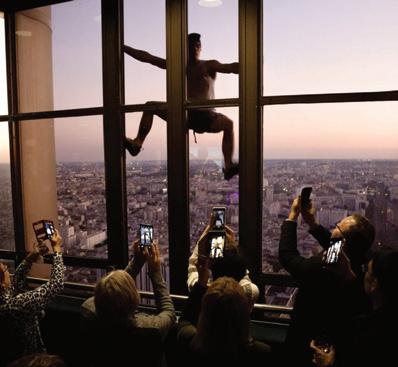
CEE eyes formal alliances as demand grows Spicee has a taste for doc partnerships
Spanish SVoDs pile on the melodrama
PLUS: The latest on Hollywood in turmoil and the rise of AI SkyShowtime | Globoplay | Viasat World | Channel 4





Enjoy The Drama
Everything about content Summer 2024










































































































































CONTEXT Factual CONTENT Americas CONTENT CANADA CONTENTL A CONTENT STRATEGIES








Your unfair advantage CONTENT STRATEGIES NIGERIA Content CONTENTL A Drama Kids TV NIGERIA Content








4K 4K 4K
Ramy-fications of Hollywood woe
This piece was supposed to be about how Hollywood’s failures in the streaming era could be encapsulated by the fact I couldn’t watch Ramy, one of the most critically acclaimed US comedy-dramas of recent years, anywhere in the UK. Not even on transaction VoD (TVoD), the worst of all the VoDs. Insert the meme of Fry from Futurama saying, ‘Shut up and take my money!’ here.
That was, until I spotted all three seasons of Ramy had popped up on MGM+, a recently revamped streaming subscription service from Amazon, the day before this magazine went to press. So maybe there is hope for Hollywood after all.
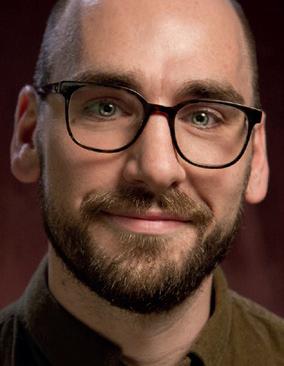
Not that you’d get that impression from reading C21media.net in May: ‘Hollywood struggles to rise from its sickbed,’ ’US animation industry on brink of collapse due to Hollywood strife,’ ‘Hollywood woes disrupt France’s recipe for success.’ These were just some of the headlines our subscribers have been processing as the last two words seemingly disappear from the phrase ‘there’s no business like showbusiness.’
As Jimmy Kimmel put it during his annual monologue to Disney advertisers at this year’s upfronts: “We are bundling, and while from the outside this may look like an act of desperation, from the inside it also looks like that. We didn’t want to bundle, we had to – like when you are freezing to death and it’s so cold you have to get into a sleeping bag with your uncle so you don’t die.”

But it’s not all doom and gloom. Over the past few months, C21 has also broken news of actual commissions (remember those?) from buyers such as Arte, Nat Geo, Warner Bros Discovery and the BBC, UKTV and Channel 5 in the UK. The main takeaway to be had from this issue is that while Hollywood’s travails continue (page eight), in other markets – such as those where the dominant language is Spanish (page 15) and in Central and Eastern Europe (page 23) – opportunities to partner still abound, even though the players may not have as deep pockets.
As I write, OpenAI is feeling the wrath of Scarlett Johansson after using a sound-alike bot to voice its latest version of ChatGPT (page 11). As former Disney boss Bob Chapek learnt in 2021, you cross Johansson at your peril. Whether a potential lawsuit from the Her and Black Widow star is enough to stop OpenAI in its seemingly unstoppable pursuit of the destruction of all humanity/ridding us of tedious admin (delete depending on your outlook) remains to be seen.
The likelihood is the recent huge advances in generative artificial intelligence (AI) we’ve seen over the past 18 months will soon level out as electricity grids struggle to cater to demand from energy-hogging AI systems.
In the meantime, I’m off to go finish Ramy. Thank you MGM+. And sorry in advance for the inevitable story on C21media.net about you being shuttered in about a year or so.
Nico Franks


CONTENTS
THE C21 CONTENT TRENDS REPORT
Channel 4’s head of streaming editorial on building audience trust and demolishing echo chambers. 8 11 15 18 20 23 27 28 30
Streamer bundling and ad tiers on Ne lix and Prime Video means ‘traditional TV’ is making a comeback in the US – just as YouTube threatens to replace it.
The latest version of ChatGPT continues to demonstrate the strides being made in the world of generative AI. But has the tech already peaked?
As TV faces upheaval, Spanish-language buyers at Max, ViX, Prime Video and Atresmedia explain why they’re happy for the melodrama to go on.
CONTENT STRATEGIES: Spicee
The specialist doc SVoD is seeking to link up with young filmmakers a er partnering with Sunny Side of the Doc.
CONTENT STRATEGIES: Viasat World
The pay TV broadcaster is eyeing more expansion in CEE and aims to buck the trend in linear with a new true crime net.
AHEAD OF THE CURVE: CEE copros
With landmark copros emerging between Western Europe and CEE, is the industry any closer to a formal alliance for scripted collaboration across CEE?
DEVELOPMENT SLATE: SkyShowtime
Kai Finke eyes copros and joint commissions with local broadcasters as the streamer orders its first originals.
THREE-YEAR PLAN: Globoplay
The Brazilian SVoD seeks international copros to maintain its originals pipeline.
PRESENT IMPERFECT FUTURE TENSE: Alexandra Wall








Channel21 International | Summer 2024 | Issue #319 7
UPFRONT
23
2-5 DECEMBER 2024 Navigate The New Content Economy 40% OFF SUPER EARLYBIRD RATE £838 rate expires June 30 - REGISTER NOW! contentlondon.net
8
30



The mess we’re in
Streamer bundling and the introduction of ad tiers on Ne lix and Amazon Prime Video means ‘traditional TV’ is making a comeback in the US – just as YouTube threatens to replace it. By Nico Franks, Jonathan Webdale and Neil Batey

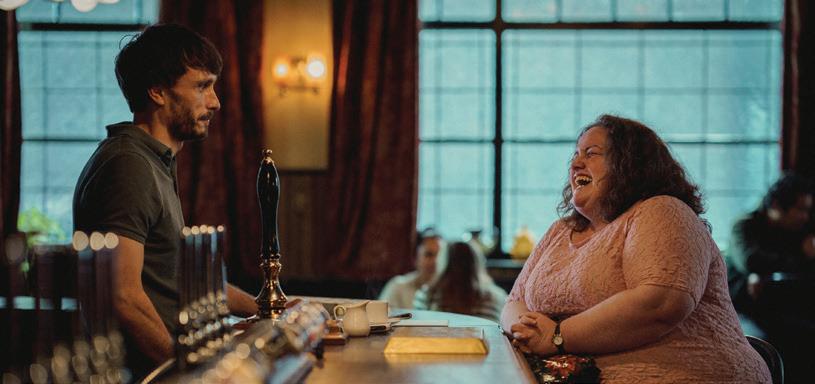
This year’s LA Screenings – once the highpoint in the international TV calendarwere framed by the US studios as getting ‘back to business’ following consecutive years of disruption, disorganisation and confusion. Be it the self-inflicted wounds caused by launching their own streaming services, the stresses of the global pandemic, or last year’s damaging dual strikes, it’s been a while since the LA Screenings have felt anything like ‘normal.’
The parties on the studio lots may have returned in mid-May 2024, but getting back to business is tricky when your business is in such a state of turmoil.
The big US studios – namely Disney, NBCUniversal, Paramount, Warner Bros Discovery (WBD) and Sony – are tying themselves in knots restructuring, consolidating and bundling while catastrophically failing to address the underlying problems facing their businesses, according to industry luminary Evan Shapiro.
“They’re making massive cuts and looking for
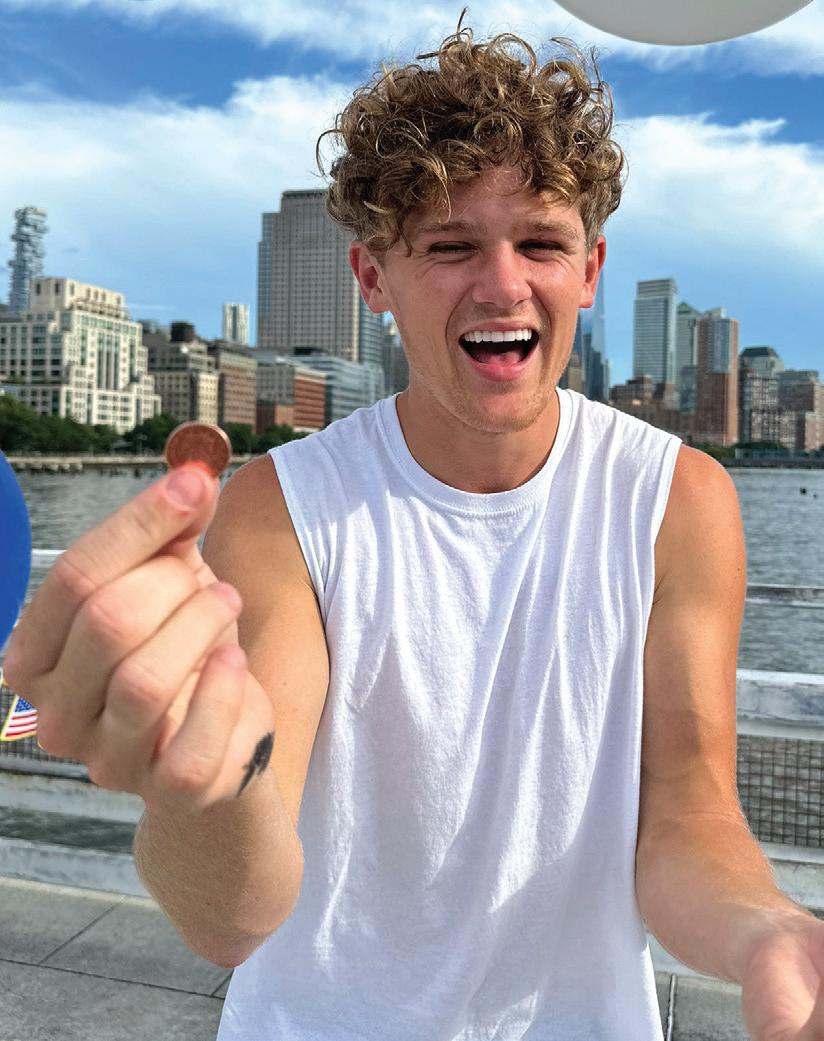
e ciencies but without a strategy, without making fundamental transformational change,” says Shapiro. The former NBCUniversal and Participant Media exec believes the entertainment industry is shifting from a “very quickly contracting” content economy, where studios were the gatekeepers, to a “very quickly expanding” creator-driven economy.
Nowhere was this more evident than at the recent US upfronts in New York, where YouTube held its annual Brandcast event and its CEO, Neal Mohan, told marketers: “We’re redefining what TV looks like, helping creators reach new heights and using AI to expand creativity.”
With high-profile YouTubers now referring to what they make as independent television, recent deals such as Amazon’s US$100m tie-up with YouTube creator MrBeast and investment firm Highmount Capital’s nine-figure investment in YouTube comedy group Dude Perfect highlight how the tide is turning.
So where does this leave the studios? Conversations in LA were dominated by the fate of Paramount, which, just as the Screenings were about to kick o , had reportedly signed a non-disclosure agreement with Sony Pictures Entertainment and private equity firm Apollo Global Management while talks between the companies continued to advance as this magazine went to press. Skydance was also in the wings.
8 THE C21 CONTENT TRENDS REPORT: Channel21 International | Summer 2024 Suits (top) and Baby Reindeer were hits on Netflix
YouTube star Ryan Trahan’s Penny Series
Amazon linked up with YouTube creator MrBeast
Things are moving quickly and the conversation around collaboration and content-sharing has moved up a notch with the news that WBD and Disney are partnering to o er Max, Disney+ and Hulu as one package with the launch of a new streaming o er from this summer. Some commentators have pointed out this deal feels a lot like the industry is returning to the days of bundled cable – the very reason consumers were keen to break free of pay TV and found Netflix so compelling.
Indeed, all this talk of streamer bundling and the introduction of ad tiers on Netflix and Amazon Prime Video – both of whom made a major splash for the first time at the upfronts in May – has a distinct whi of the bygone era of traditional TV.
“On-demand and streaming have been unbelievable for consumer choice and control and it has really put the controls of TV back in the hands of consumers. But there’s something incredibly magical about folks gathering around the TV together in the living room to watch something all at the same time,” said Netflix co-CEO Ted Sarandos during the company’s most recent quarterly results call.
















seems intent on








ad revenues, and because the studios are desperate to claw back money from their own streaming investments, they are willing to license their most adfriendly library content all over again – with some unexpected upsides.

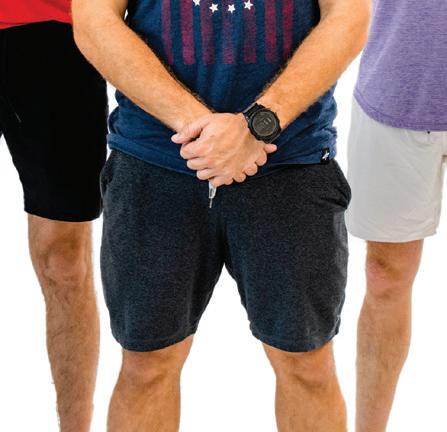



For example, Netflix’s huge success with NBC’s Suits – the legal drama it licensed from NBCUniversal last year and which broke its viewing records – has helped spawn a new version back at its original studio and network.



– the legal drama it licensed from NBCUniversal last year and




Rahul Patel, research manager at Ampere Analysis, points to Disney’s deal with Netflix at the end of last year for shows including Lost, This Is Us, Archer and Prison Break as another instance of shifting tectonics.


Meanwhile, WBD’s decision to license a string of HBO shows, including Band of Brothers, Six Feet Under and Ballers to Netflix was “a watershed moment,” says Jack Davison, executive VP of UK research firm 3Vision.
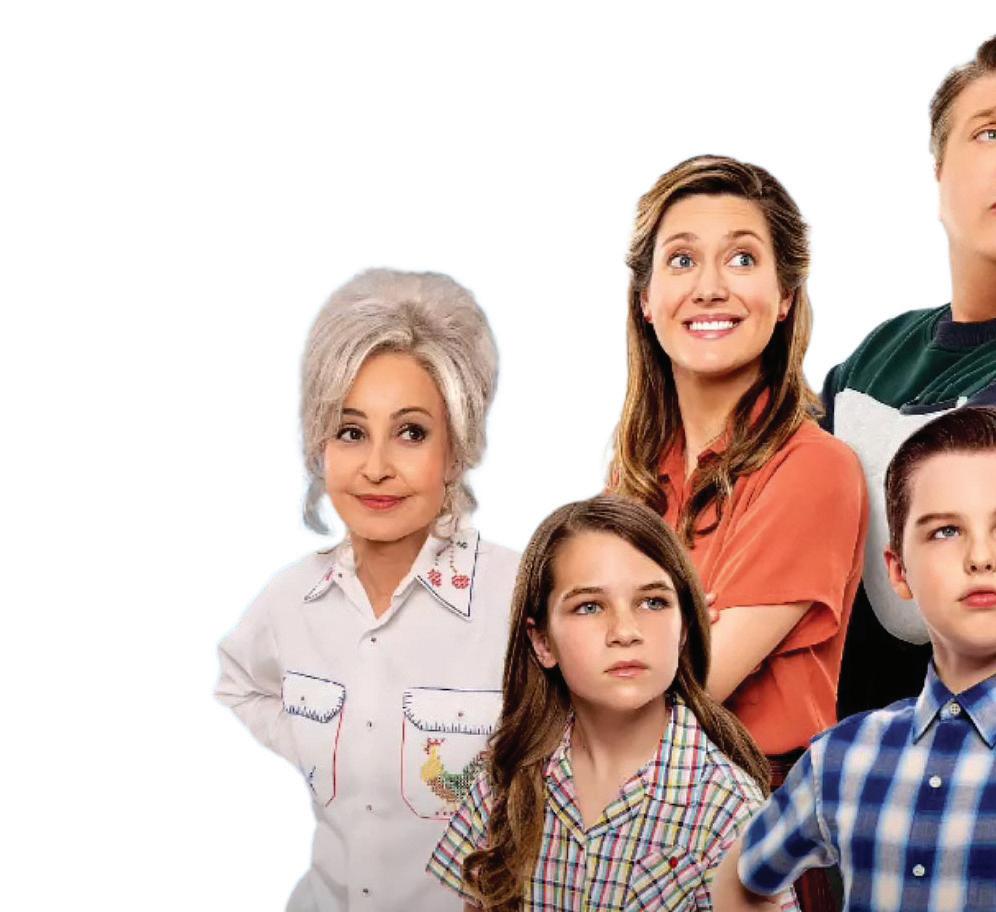



Having eaten Hollywood’s lunch in streaming, the market leader now seems intent on taking a major bite out of the US broadcast networks’ diminishing


actor and filmmaker


“That one in particular is interesting to me because it draws out the di erence in produces for its own service,






“That one in particular is interesting to me because it draws out the di erence in the scripted content that Netflix produces for its own service, and the type of scripted content it is licensing from Disney – those long-running network shows of 20 episodes per season, 45 minutes per episode,” Patel says.





There was a big boom and lots of super-exciting TV was being made across all budget levels. Executives made these wildly creative swings in the mid-budget range and that was exciting. However, now they’ve decided, ‘Wait a minute. I’m not sure we can spend this much money,’ so they pulled back in the middle market. There’s now the super expensive stu and really cheap reality TV and bosses are getting more conservative even within this model. But I still believe audiences want to see mid-budget content. It’s been proven time and time again with successful shows like Baby Reindeer on Netflix and Fleabag on the BBC.
Brandon Katz, entertainment industry strategist, Parrot
The mega-mergers not only haven’t delivered significant, consistent shareholder value, but you can argue they haven’t solved any of the major issues facing the transition from traditional entertainment to streaming, digital-focused entertainment. It has just been scale for scale’s sake, which hasn’t really resulted in a massive improvement in the way we do things.
Thomas Dey, CEO, ACF Investment Bank Consolidation rarely fixes problems. It fixes one party’s problems but I don’t think it’s necessarily healthy for the industry. What often happens is it’s the smaller company that e ectively disappears and the question is really about the parent company – how much they spend to buy that smaller company. If they buy it on the principle that two plus two equals five, then they’re often disappointed.
Other WBD titles have since followed the same route, with Young Sheldon and Sex & the City also making their way to Netflix in the US while still being available on WBD’s streamer Max, with “coexclusivity” increasingly common.
“Netflix is powering on. They won the streaming war last year. They’re winning in most markets, winning with subscribers and now with their ad tier they’re focused on driving their viewing even higher,” says Jack Davison, executive VP of UK research firm 3Vision.

“Having some of these larger TV shows is feeding into the discussion around the launch of ad tiers.”

larger TV shows is feeding into the of

Those same international TV buyers that headed to the LA Screenings before the pandemic and complained of Netflix snapping up all the best shows before they had a chance may have found themselves experiencing a sense of deja vu.
Rahul Patel, research manager, Ampere Analysis
A lot of companies are now opening up to non-exclusivity or co-exclusivity, which is increasingly being used around content shared between services. Licensing is being used almost as a marketing tool to boost the profile of assets, so that when a new instalment is released, they can help to promote that title by putting previous instalments in front of as many consumers as possible through these deals.

Diana Williams, co-founder and CEO, Kinetic Energy Entertainment
A lot of creators have built up their audience on their own and they don’t want to deal with the traditional system, where it can take six weeks to get a meeting. In that time, a digital creator could have made 14 pieces of content for their fans. For the next generation of creator, ours can be a very frustrating industry. There’s just too much bureaucratic red tape. That’s a fault with the way the system was built and why so many creators from the digital side can’t deal with the system the way that it is.

Beatrice Springborn, president, Universal International Studios
These creators are paving the way for the future. Hopefully, at some point, they’ll come to work in scripted or unscripted TV. YouTube creators force us in TV to question what we’re doing and especially how to appeal to a younger audience. Ryan Trahan’s Penny Series is one of the most entertaining shows I’ve ever seen and my daughter tells me Universal should adapt it into a TV series. The problem is YouTubers and TikTokers make a great living and don’t need to do TV.
Channel21 International | Summer 2024 THE C21 CONTENT TRENDS REPORT:
YouTube comedy group Dude Perfect
Young Sheldon
Mark Duplass,



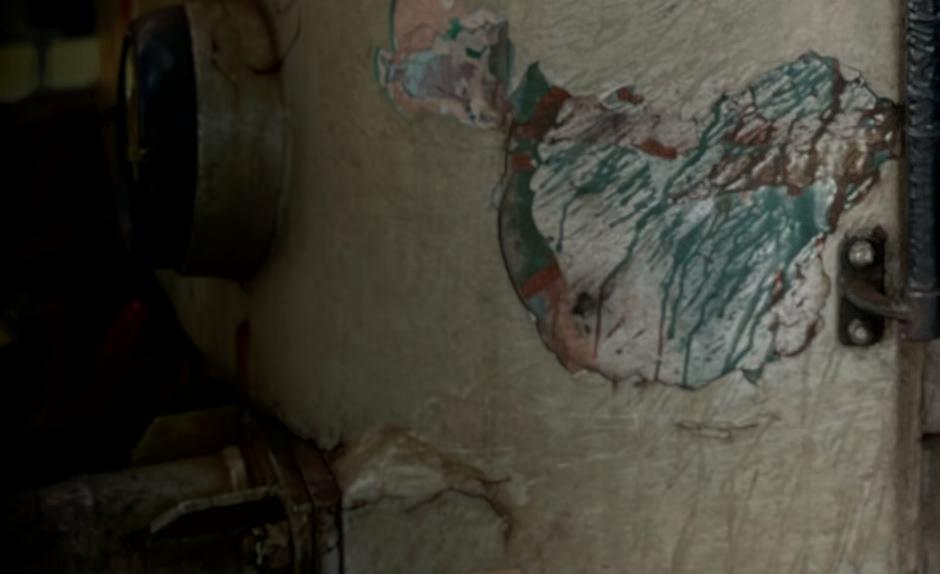
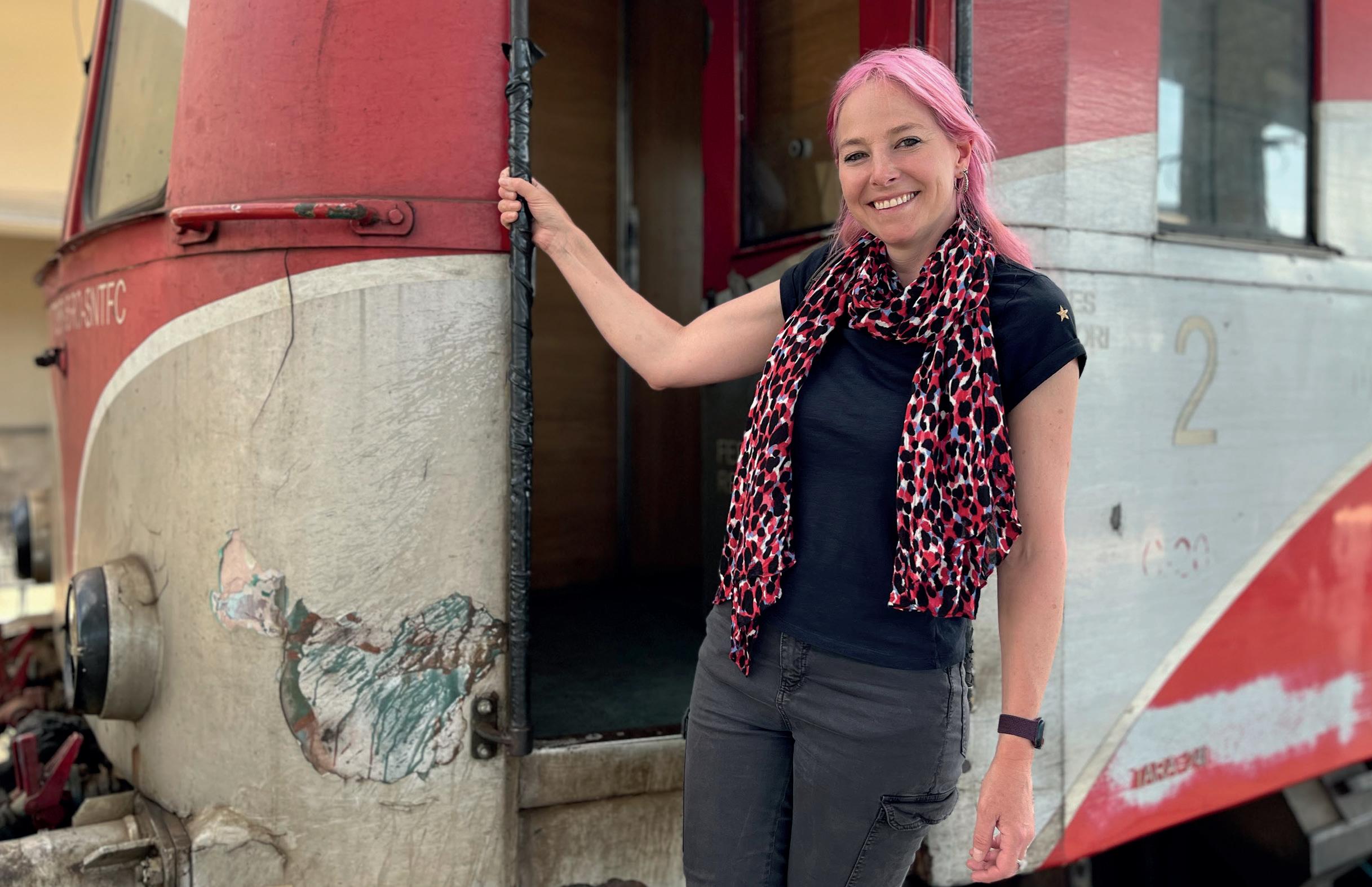


















www.bossanovamedia.com The new wave in Distribution
x 60’ History & Mystery
EMPIRE BY TRAIN MUSEUM MYSTERIES
History & Mystery 1
60’
History & Mystery THE INFINITE DEEP: STORIES OF LOST SUBMARINES
5
OTTOMAN
2 x 60’
x
/ 1 x 90’
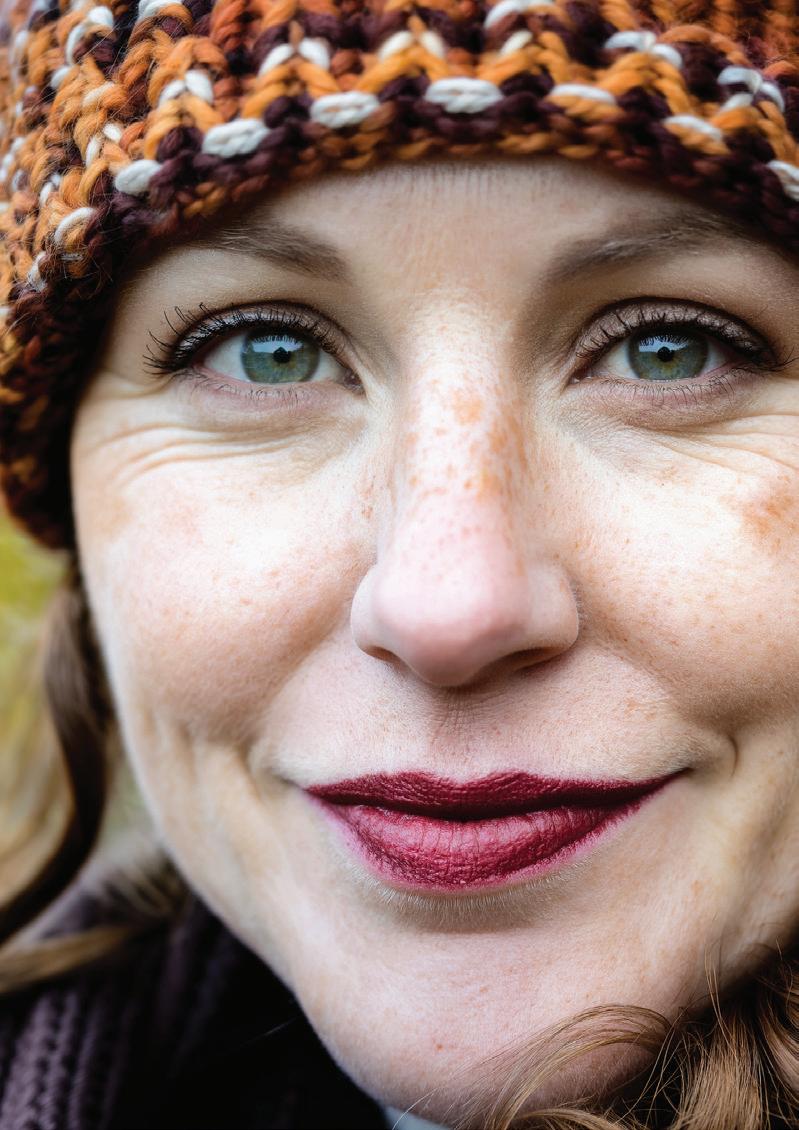

Are we at peak AI?

AThe latest version of ChatGPT continues to demonstrate the great strides being made in the world of generative AI. But will the tech continue to improve exponentially, or has it already peaked? By Nico Franks
nother four months, another new era of artificial intelligence (AI). In mid-May, OpenAI, the Microsoftbacked company behind ChatGPT and DALL-E, released GPT-4o, its latest AI model designed to facilitate more natural and conversational interactions faster and cheaper than previous OpenAI models.
It aims to bridge the gap between text, image and audio inputs, allowing users to interact with an AI system in realtime as if on a video call with a real person. Its modus operandi, according to the increasingly powerful tech company, is to make conversations with ChatGPT “more human-like,” bringing us closer to a world in which having a personal AI assistant is the norm.
It seems to have succeeded, with tech journalists noting that its demo video featured an eerily flirtatious AI system, one able to use sarcasm, laugh at jokes and offer up compliments in a convincing way. Anyone familiar with Spike Jonze’s 2013 feature film Her will know what happens next.
This came just a few months after OpenAI CEO Sam Altman unveiled Sora, the groundbreaking AI technology capable of converting text or voice prompts into multimedia instantaneously, the capability of which shocked the film and TV industries.
Speaking to The Logan Bartlett Show shortly after the

release of GPT-4o, the 39-year-old was asked how far we could be from reaching artificial general intelligence (AGI), a type of AI that can perform as well or better than humans on a wide range of cognitive tasks, with the downside being it could become so powerful it would potentially pose a threat to humanity. Less admin = good. Global annihilation = bad.
“I no longer think of it as a moment in time. When we started, I thought we’d get to a moment when we didn’t have AGI and then we did. On the whole, I think it’s going to look like a continuous exponential curve, where what matters is the pace of progress year over year over year,” said Altman.
“I don’t expect our next big model to be over the threshold of AGI. But I can imagine we’re only one or two or some small number of ideas and a bit more scale away from something that is different and it’s important to stay vigilant about that.”
Predicting that the models will eventually “pose significant catastrophic risk to the world,” Altman was calling for more regulation to avoid such a scenario, a stance that puts him in stark contrast to many of his fellow CEOs within Silicon Valley.
“I do have empathy for where they’re coming from. Regulation has been, net, really bad for technology. u

THE C21 CONTENT TRENDS REPORT: Summer 2024 Channel21 International | Summer 2024
11
Varied examples of multimedia created by OpenAI’s Sora using text and voice prompts
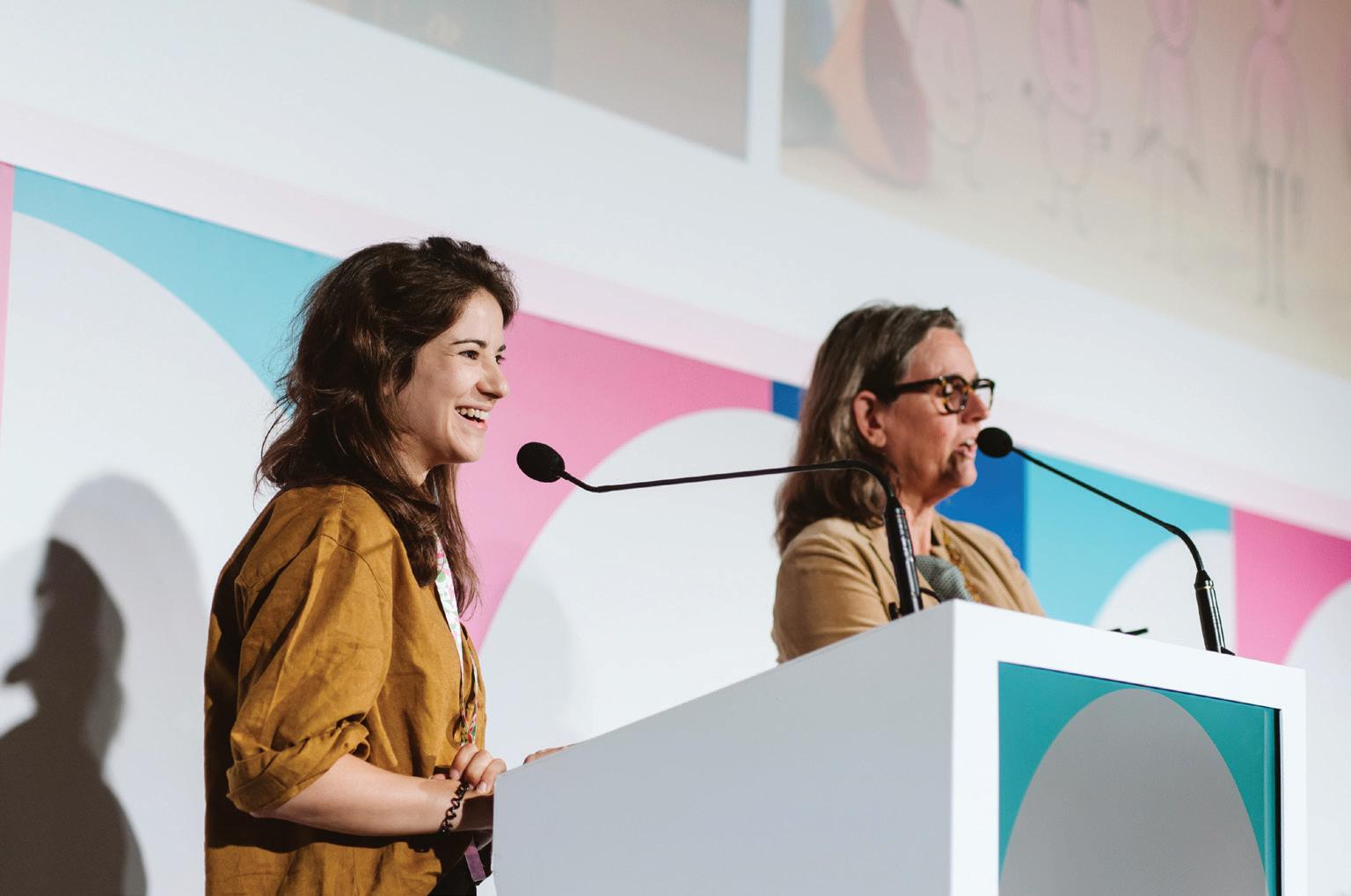
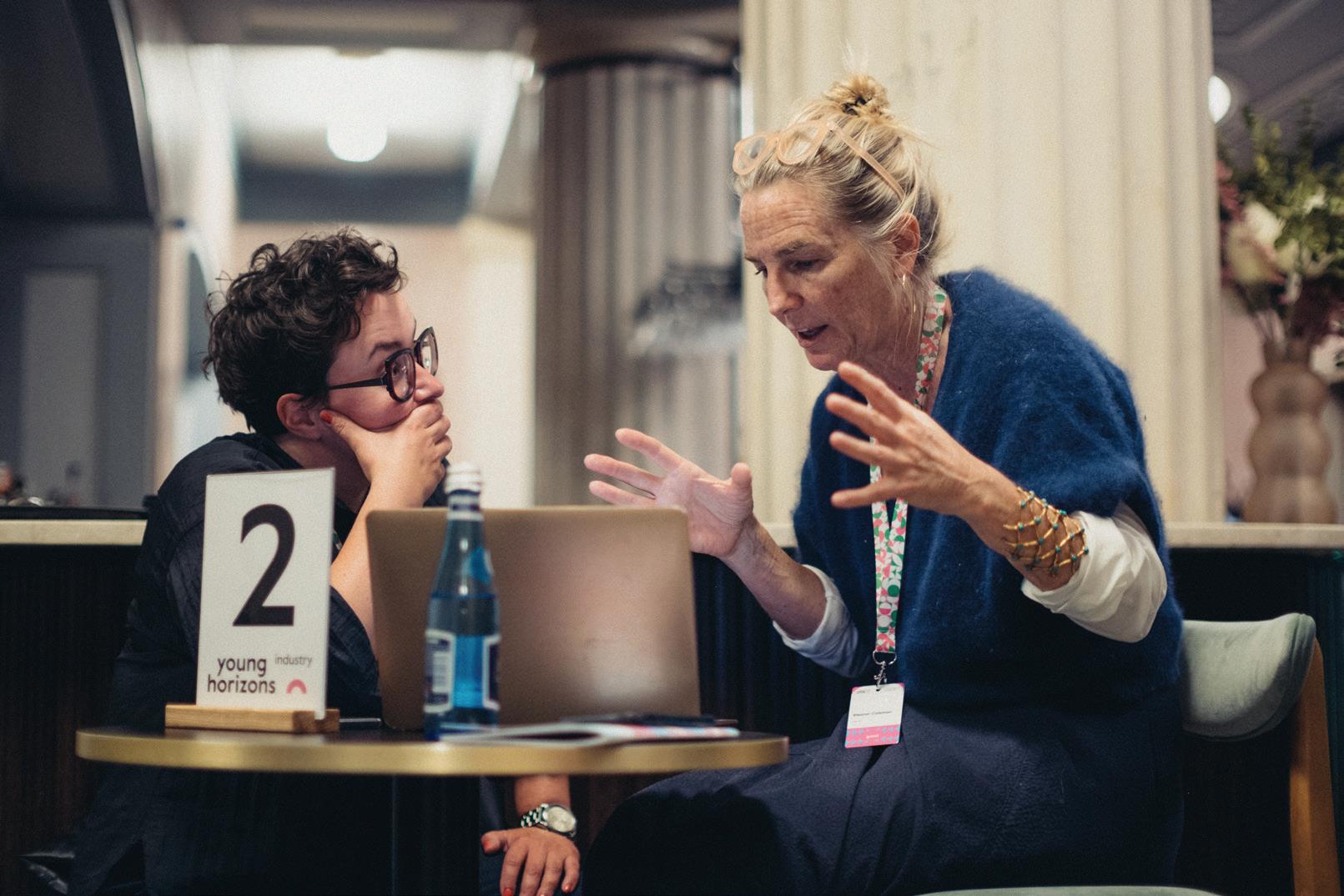







Sam Altman, CEO, OpenAI
The original ChatGPT showed a hint of what was possible with language interfaces; this new thing feels viscerally different. It is fast, smart, fun, natural and helpful. Talking to a computer has never felt really natural for me; now it does. As we add (optional) personalisation, access to your information, the ability to take actions on your behalf, and more, I can see an exciting future where we are able to use computers to do much more than ever before.

Rafael Brown, founder and CEO, Symbol Zero
The AI bubble is jumping the shark. That means that the end is near.
The greater the hyperbole, the more the desperation. I think it will be dead before the
end of the year. This bubble needs to be burst; the hyperbole is getting ridiculous. The erroneous assumption that we are reaching a science fiction future prematurely is mostly being down to individuals trying to promote stock growth of companies that would be stagnant otherwise. This isn’t AI, it’s human hype.

Zach Mulligan, founder and CEO, ZOPStudios
OpenAI is currently meeting with Hollywood studio executives to show how they can utilise their new tool. Studios are looking for any reason to use AI not as a tool but as an excuse to significantly reduce spending on pesky human artists. Despite CEOs claiming AI will boost productivity, the reality often shifts towards reducing staff under the guise of saving time and money. At the end of the day,
Look what happened to the European technology industry. I get it, I really do. And yet I think there is a threshold we are heading towards, above which they will feel a lot different,” warned Altman. It’s for this reason he has been described as “the Oppenheimer of our age.”
Meanwhile, a paper released by Cornell University days before GPT-4o suggested diminishing returns from larger and larger generative AI models, to such an extent the tools may have already peaked and will not continually improve –contradicting the received wisdom accepted by certain tech bosses.
Dr Mike Pound, a researcher at the University of Nottingham in the UK, says the “very thorough” paper states the ability of generative AI tools to continually improve is over-egged and its capacity to complete increasingly complex tasks will flatten out and instead mistakes, or “hallucinations,” will increase.
“The suggestion is that you can keep adding more examples and keep making the models bigger, but we are soon about to hit a plateau where we don’t get any better and it’s costing millions of dollars to train. At what point do you say, ‘That’s probably as good as we’re going to get?’” says Pound.
The jury, it seems, is out, with many in the film and TV industry remaining concerned about the ramifications of greater use of generative AI tools, particularly in relation to animation production.
ChatGPT is not the one calling in hundreds of artists onto one Zoom call to tell them that they’ve all been laid off. It’s the humans that are doing this – the same humans that receive massive bonuses for saving the company money by implementing these massive layoffs.

Simon David Miller, founder and CEO, New Forest AI is poised to revolutionise the film and TV industry, and it’s crucial we understand its potential impact on the creative process. At New Forest, we’re committed to embracing this tech in a way that protects and enhances human creativity, rather than replaces it. By partnering with C21Media on this important survey, we hope to gain valuable insights to help shape the future of content creation in a world where AI and human ingenuity work hand in hand.
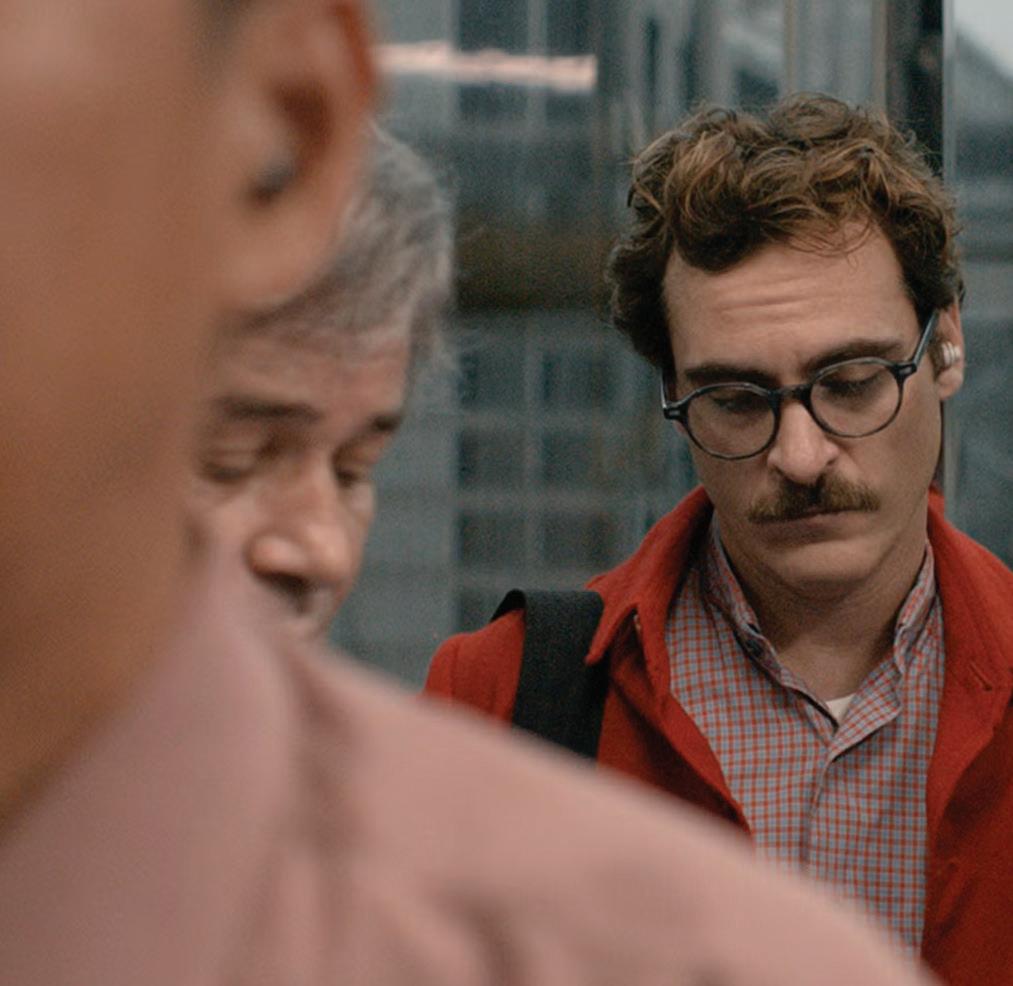
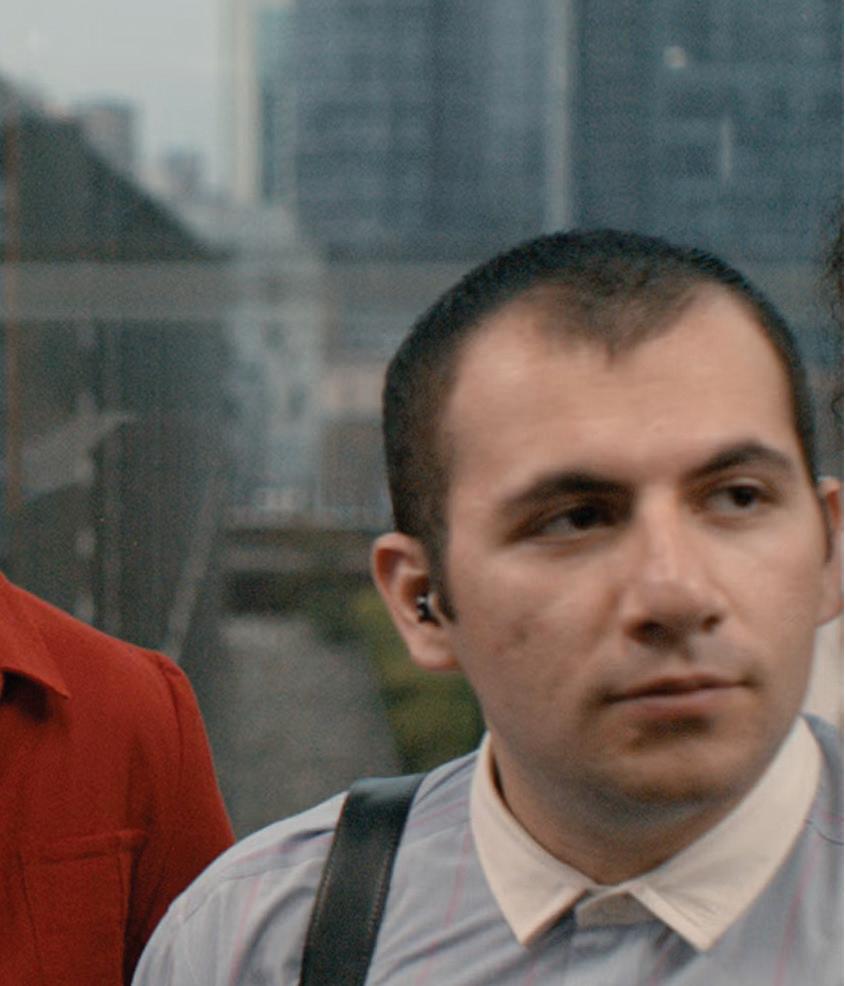
Zach Mulligan, who worked at companies such as DreamWorks Animation and The Jim Henson Company before setting up LA-based ZOPStudios in 2022, took to YouTube in May to issue an urgent warning to the industry in LA via a video titled The Animation Industry is Collapsing The US animation industry is on “the brink of collapse” due to a “perfect storm” of factors, including sweeping industry cuts and the threat of AI, with strike action needed to avert disaster, according to Mulligan, who took aim at everything from Moonbug Entertainment’s YouTube channel CoComelon to greedy studio execs in the compelling polemic.
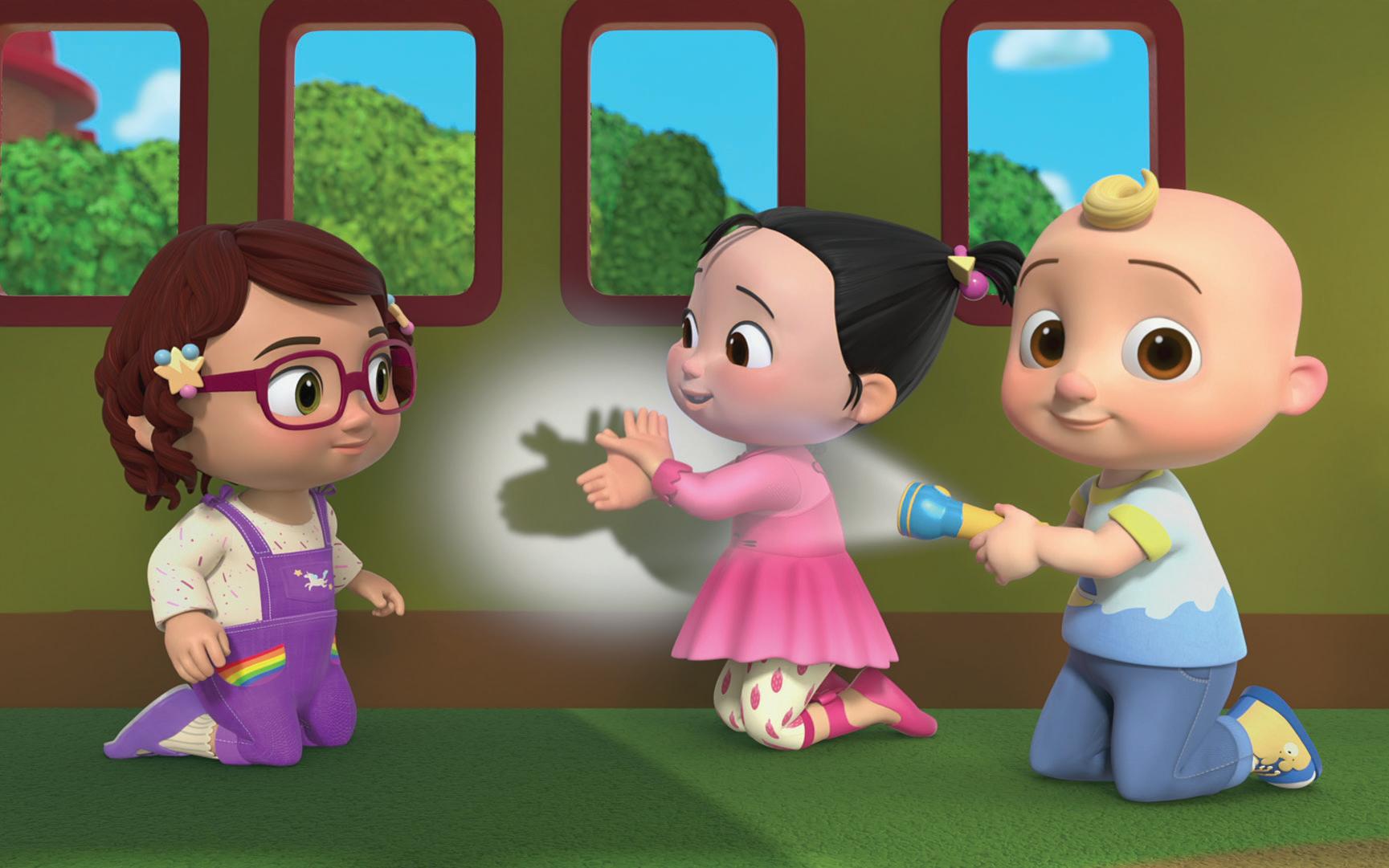
C21Media has joined forces with UK-based New Forest to create the AI & the Future of Production Survey 2024, as part of our ongoing AI Report into how this new technology will impact the global content business. The survey is open until Friday June 7. Include your email in your response to enter the draw for a ticket to Content London 2024.
13
Channel21 International | Summer 2024 THE C21 CONTENT TRENDS REPORT: Summer 2024
GPT-4o echoes the flirtatious AI system in Spike Jonze’s film Her. Left: YouTube kids’ animation channel CoComelon
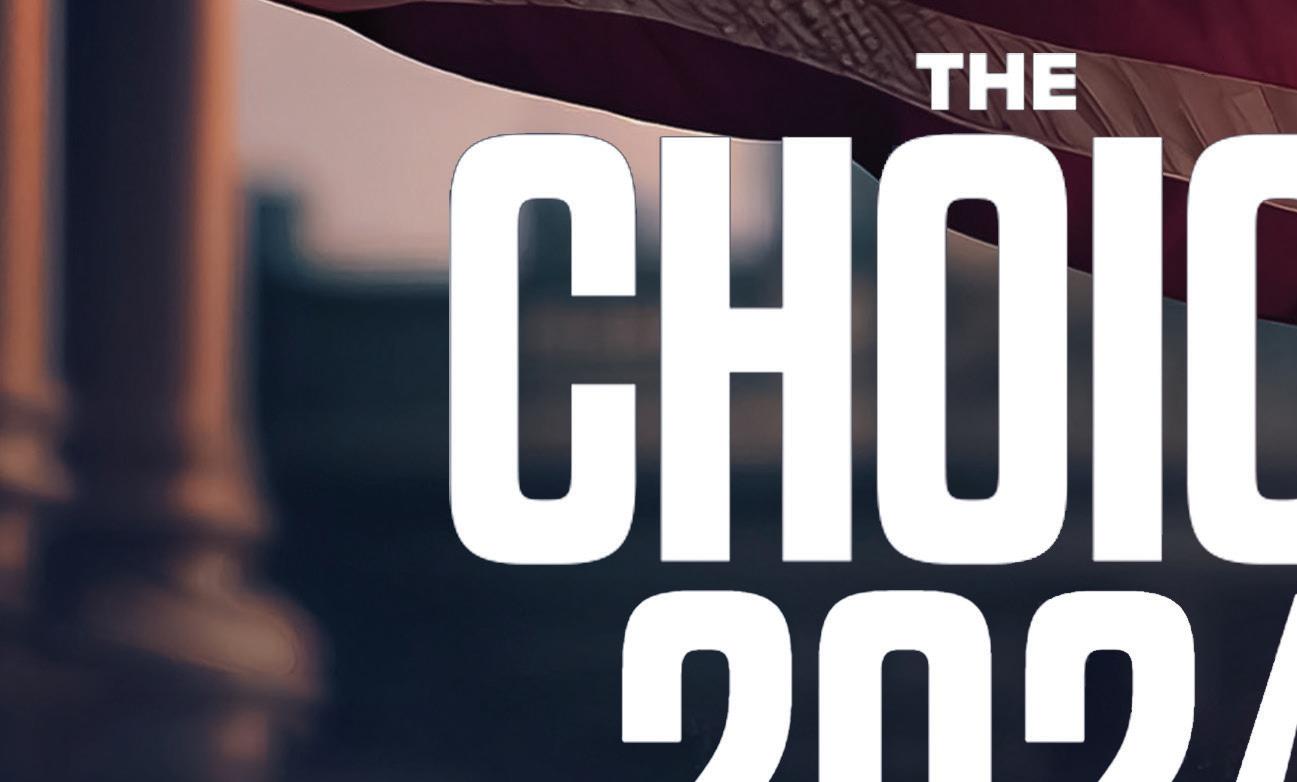







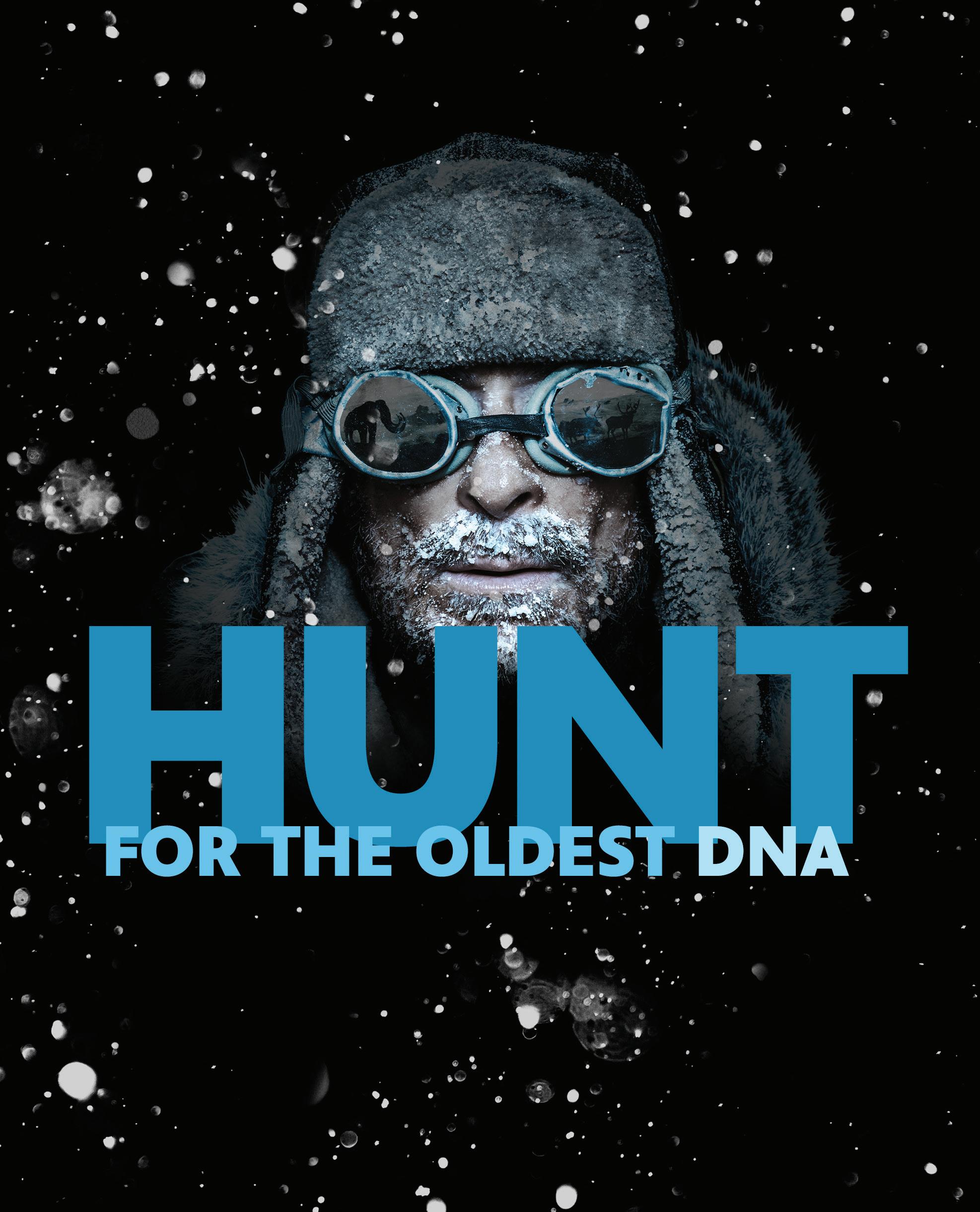









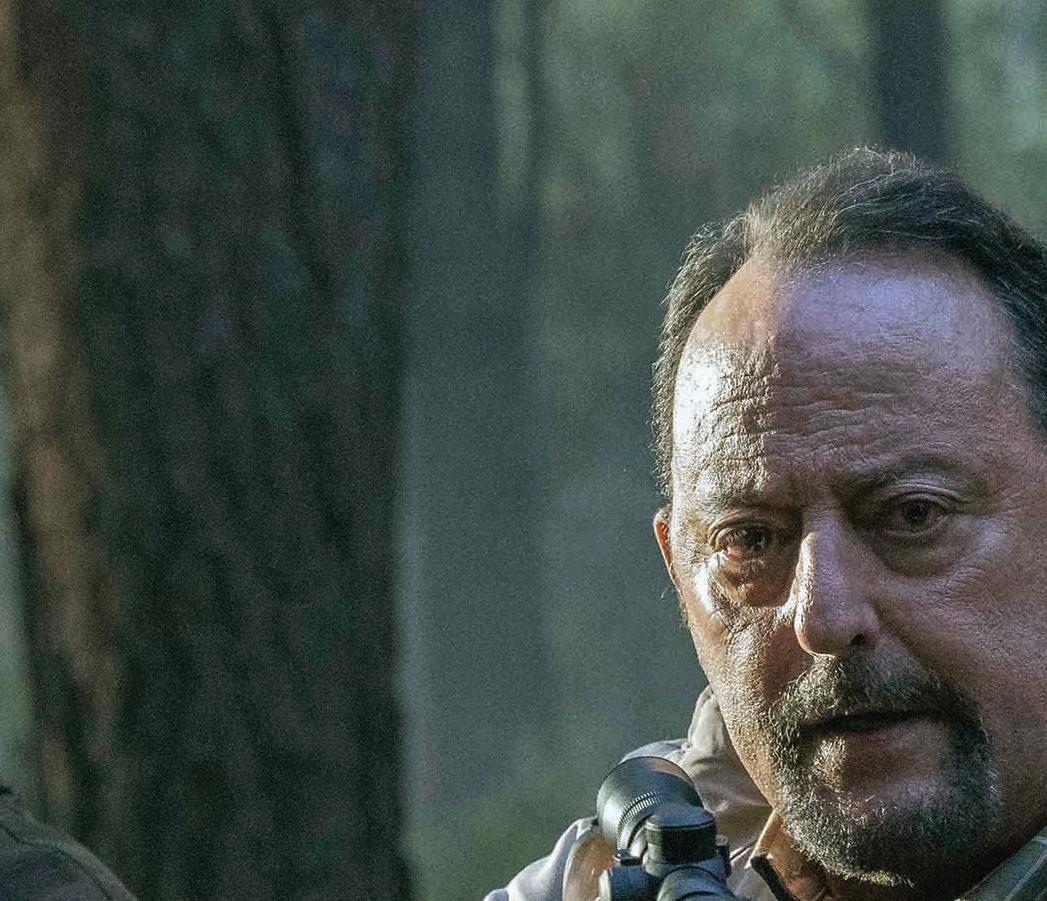
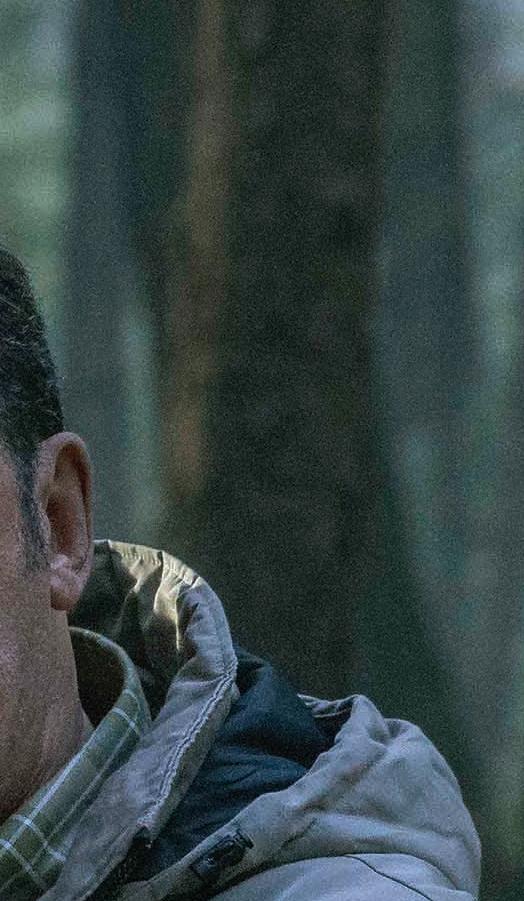
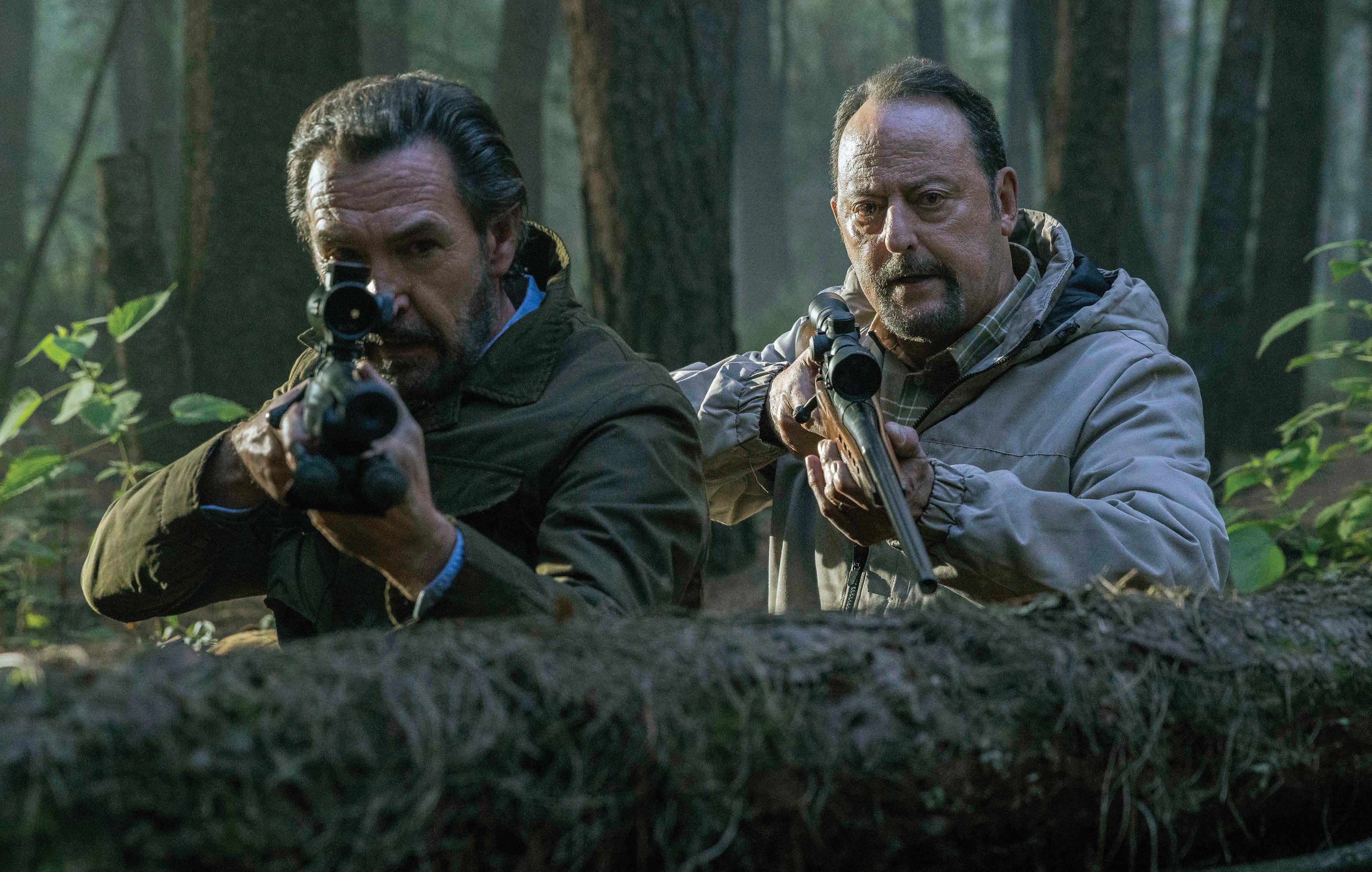
A taste for the melodramatic
While commissions have been hard to come by in the first half of 2024, buyers will always need new content and the array of streamers serving Spanish-language audiences worldwide means there are plenty of opportunities – particularly if you’re taking part in the ongoing evolution of the modern melodrama.
Many platforms have re-evaluated their content strategies over the past 18 months, often talking about placing safer bets while also acknowledging the need to take risks to stand out in a crowded market. Look at Baby Reindeer, stand-up comedian Richard Gadd’s tale of stalking and sexual assault, which quietly came out of Netflix’s UK operation to take the world by storm in April.
In Spain and Latin America, buyers appear to be following three main guidelines: growing the unscripted content available on streaming services; continuing to explore the ever-popular genres of thriller and true crime; and adding as much melodrama to proceedings as they can.
Once fledgling streamers such as ViX, the Spanish-language service from TelevisaUnivision launched in 2022, are entering their second phases and using lessons learned from their first wave of commissioning to inform their new orders.
Scripted melodrama, comedies, documentaries and more coproduction partnerships are high on ViX’s wishlist, with CEO Pierluigi Gazzolo saying, after an initial spree of 70 productions, that the outfit now has a clear picture of what works for it and what doesn’t.
“We now know that there are three genres that have stuck [home] the most. The one that works best on the platform is melodrama; I am talking about series that look like novels. A melodrama always has at its core a deception, a passion – but then it has a twist.

There have been plenty of theatrics in the boardrooms of TV companies around the world in 2024, but as producers cross their fingers for commissions, Spanish-language buyers at Max, ViX, Prime Video and Atresmedia are happy for the melodrama to go on. By Nico Franks
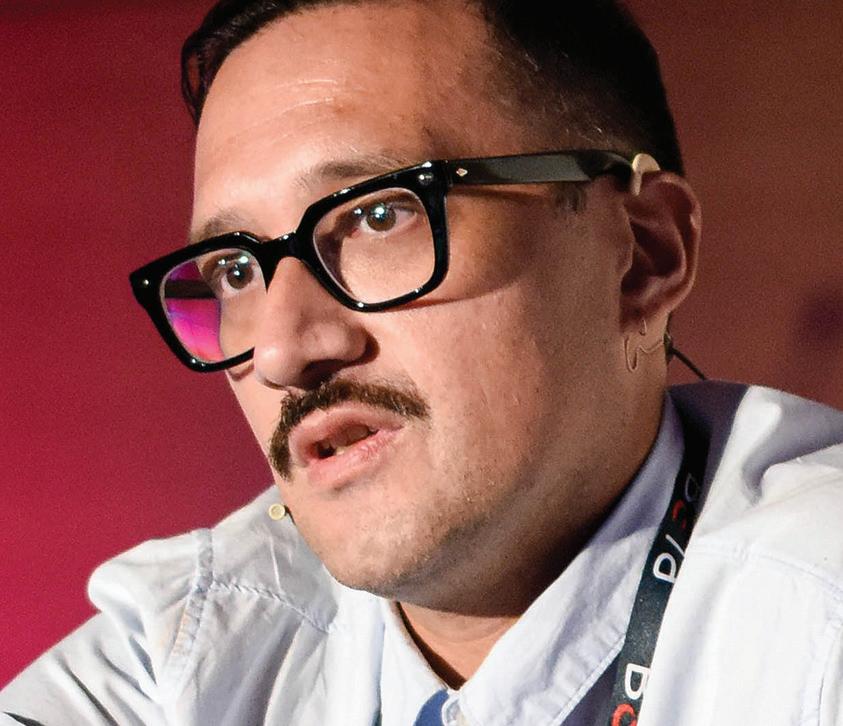

“Hyper-local content has also worked for us, where we tackle contemporary stories, maybe of a crime or a scandal that was never solved and, taking advantage of our access to so many clips and documentaries thanks to our TV networks, we create content like the docuseries The Show: Chronicle of a Murder. That works very well for us. And, finally, reality TV. I always saw reality as a genre for television, not for streaming, but it’s working very well for us.”
Indeed, it feels like everyone in the Spanishlanguage market is seeking melodrama, perhaps encouraged by the success of series such as Who Killed Sara? and Marked Heart on Netflix, thrillers with the soul of a telenovela.
For example, Ángel Inzunza, speaking as creative

executive for Mexico at Amazon-owned Prime Video and Amazon Studios prior to his recent move to Netflix, said he wanted to see elements of melodrama in all of Amazon Studios’ local content.
“For Mexico, the content must consider having that melodramatic DNA, with whatever base: thriller, drama or comedy. We would like to receive thrillers, projects with supernatural themes, grounded science fiction and comedies, with melodrama,” said Inzunza.
Diego del Pozo, fiction manager at Spanish broadcaster Atresmedia, says its needs haven’t changed much in recent years. “For our Antena 3 channel we want what we have traditionally looked for, which includes melodrama, historical period drama, family comedy, emotional thrillers,
L-R: Ángel Inzunza, Pierluigi Gazzolo of ViX and Warner Bros Discovery’s Sergio Nakasone
THE C21 CONTENT TRENDS REPORT: Summer 2024 Channel21 International | Summer 2024
Netflix revenge thriller Who Killed Sara?
15
FRITZI
AND
SOPHIE – A BORDERLESS FRIENDSHIP
BY RALF KUKULA, MATTHIAS BRUHN, THOMAS MEYER-HERMANN
Family Entertainment
Series 8 × 22 min
Produced by Balance Film, TrickStudio Lutterbeck,
Studio FILM BILDER in co-production with ARD, MDR, WDR, SWR German with English subtitles
SHE SAYS, HE SAYS
BY MATTI GESCHONNECK
Drama
TV Movie 105 min
Produced by MOOVIE GmbH, ZDF German with English
subtitles
CURIOUS TOBI AND THE TREASURE HUNT TO THE FLYING RIVERS
BY JOHANNES HONSELL
Family Entertainment
92 min
Produced by Megaherz in co-production with Bayerischer Rundfunk German with English
subtitles

BASED ON THE AWARD-WINNING MOVIE FRITZI –A REVOLUTIONARY TALE




WRITTEN BY THE BESTSELLING AUTHOR FERDINAND VON SCHIRACH
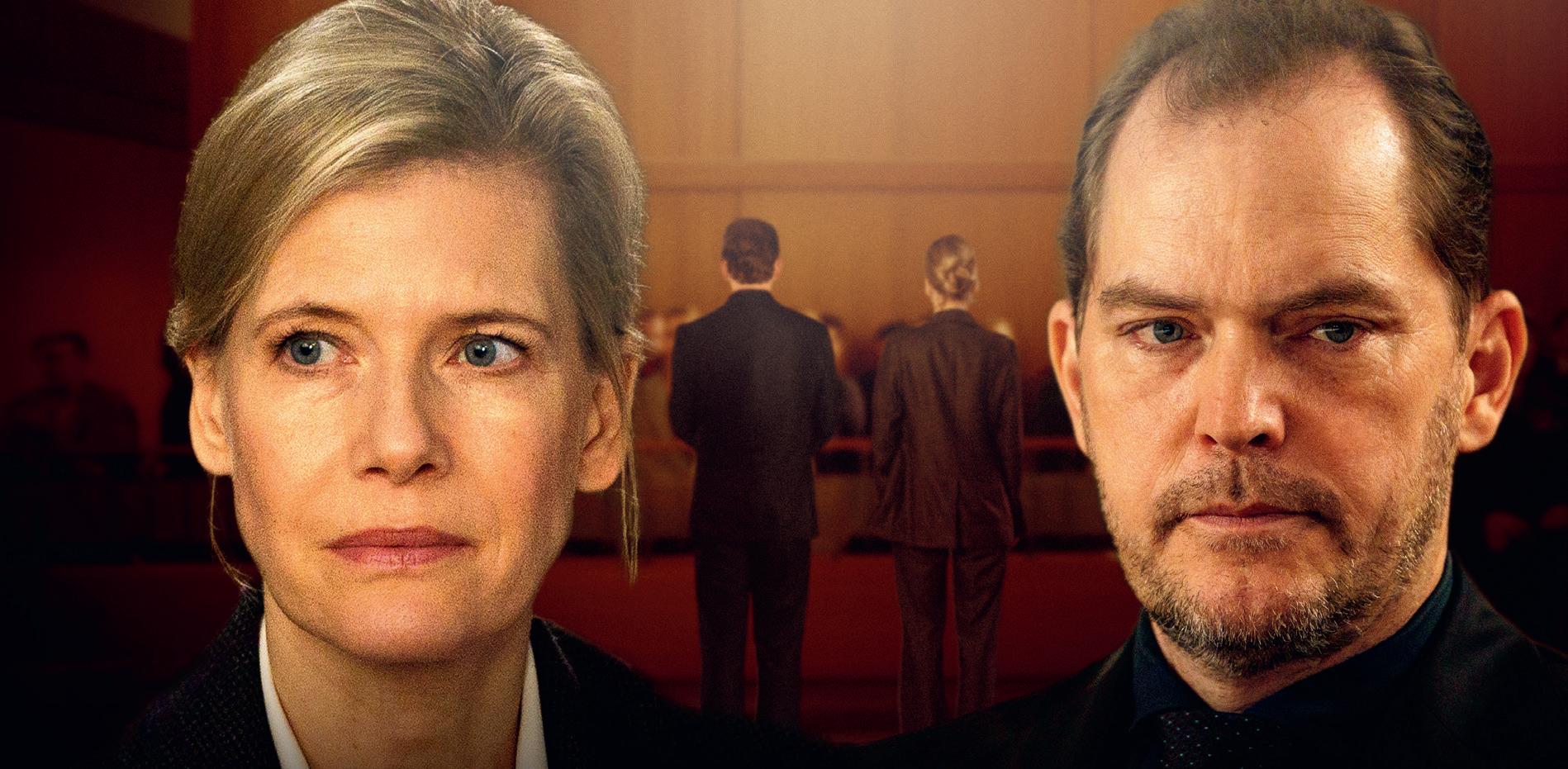

ENORMOUS BOX OFFICE HIT IN GERMANY WITH OVER 1.2 M ADMISSIONS

CHECK OUT OUR HIGHLIGHTS! WWW.GLOBALSCREEN.DE
literary adaptations and procedurals, which we have recently brought back.
“As for the Atresplayer platform, we are going to continue with thrillers and we are looking for youth thrillers, psychological thrillers, supernatural thrillers, 30-minute thrillers, as well as highconcept comedies.
“We are also very interested in everything that has to do with stories based on real events and characters, in continuing to explore youth drama and young-adult content, and we are exploring genres that perhaps we are not yet so closely related to, such as science fiction, musicals and true crime. In the meantime, we still haven’t found that first project to encourage us to get into horror, which we’ve been actively looking for for years.”
Meanwhile, Sergio Nakasone, head of nonscripted content development for Latin America and US Hispanic at Warner Bros Discovery (WBD), explains how the media giant’s buying habits have changed from those of a contestant on Supermarket Sweep to a fastidious collector on Bargain Hunt.
“When we started this, we felt like we were in one of those 1990s programmes where they gave you two minutes to fill up your cart and buy everything you could. Today that’s changed,” says Nakasone.
WBD is looking to be more targeted with its commissions and acquisitions, as its unscripted team seeks true crime and celebrity-led docuseries or biopics. “These are trends that we feel will not change,” believes Nakasone.
With additional reporting by Gonzalo Larrea
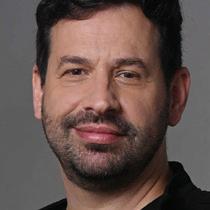

Mariano Cesar, head of general entertainment content for Latin America and US Hispanic, WBD
We are increasingly refining our analytical and mathematical models and analysing our return on investment. Our strategy continues to be to complement a global content offer that is very solid with local content or with genres that are particularly relevant in Latin America, such as telenovelas, where we believe we can also tell quality, relevant stories with production values and with talent that can really connect with audiences.

Rodrigo Mazón, outgoing chief content officer, ViX
Our ambition is to grow in all Latin American countries with local stories. Our editorial line is quite broad: we want to offer all kinds of content that can appeal to the entire population. Undoubtedly, we focus in large part on the melodrama genre, because it is a universal and a broad genre at a global level. But we also have in our pipeline and under evaluation all kinds of genres, from comedy to horror or non-fiction, where we have found a lot of success in documentaries and docuseries. [Mazón leaves ViX on July 1]
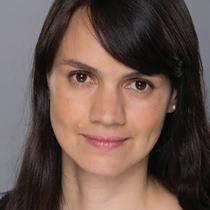
Camila Misas, head of local originals for Argentina, Chile and Colombia, Prime Video and Amazon Studios
In Chile, Colombia and Argentina the current strategy is to increase the number of films. The studio is generally moving towards films, like action films and comedies, obviously without stopping making series. But we do see that films are travelling more and that good quality films can be made without necessarily very high costs. You can also make sequels. The intention is to make more coproductions, to be very intelligent with the use of money and to take advantage of the tax incentives that exist in Colombia, Uruguay and other territories.
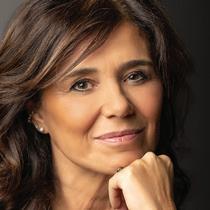
Elisabetta Zenatti, VP of content for Brazil, Netflix
Our goal at Netflix is to do one thing and do it very well: great entertainment. We prioritise good stories and not genres, and we analyse every idea we receive. We seek to receive projects that have originality and a connection with Brazilian identity and culture. It is important to reinforce that we like courage and that we take risks. We like to listen to different voices and we are open to new things. Netflix’s commitment to Brazil is long-term.

Carmen Ferreiro, entertainment director, Atresmedia
We are always interested in formats that bring an extra touch of novelty to the viewer. At Antena 3, we programme pure entertainment formats that provide novelty and entertainment. Our philosophy is quality, variety, diversity and respect for the viewer. The great difficulty on streaming and Atresplayer is to find content that makes viewers want to subscribe to watch it. And for that to happen, it has to have a very powerful premise, so that the viewer feels that they can’t miss the second episode.

Susana Herreras, executive producer and original production content manager, Movistar Plus+
We continue with the same objectives for the number of series, which range from nine to 12 per year. It’s true we always prioritise quality, so sometimes the challenge is to find enough projects per year that fit in with that editorial line. We continue in a very conscious search to find diversity in the projects and a balance between the light and the dark. Sometimes it seems that personality or authorship is associated with the complicated and the twisted. We will continue to work with authors with complex, dark or deep stories, but we also look for things that are bright, big and entertaining.
17
Channel21 International | Summer 2024 THE C21 CONTENT TRENDS REPORT: Summer 2024
Netflix organ trafficking drama Marked Heart

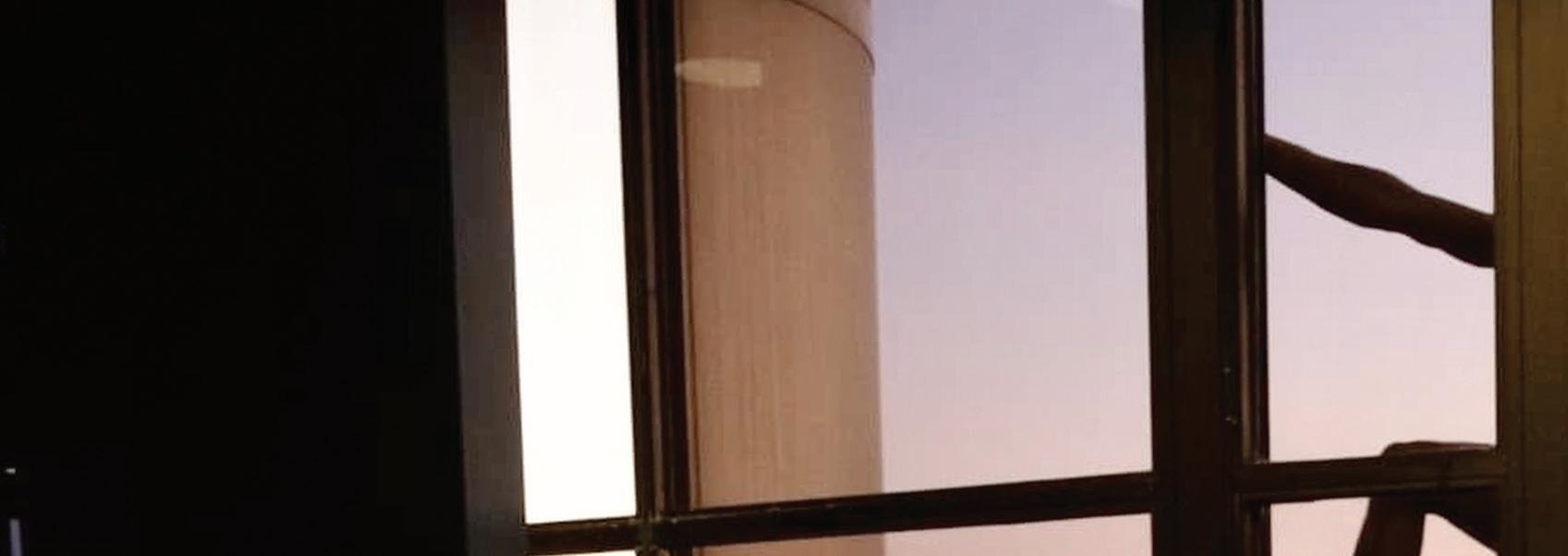
 Etienne Millet’s self-produced
Vertige Moderne
Etienne Millet’s self-produced
Vertige Moderne

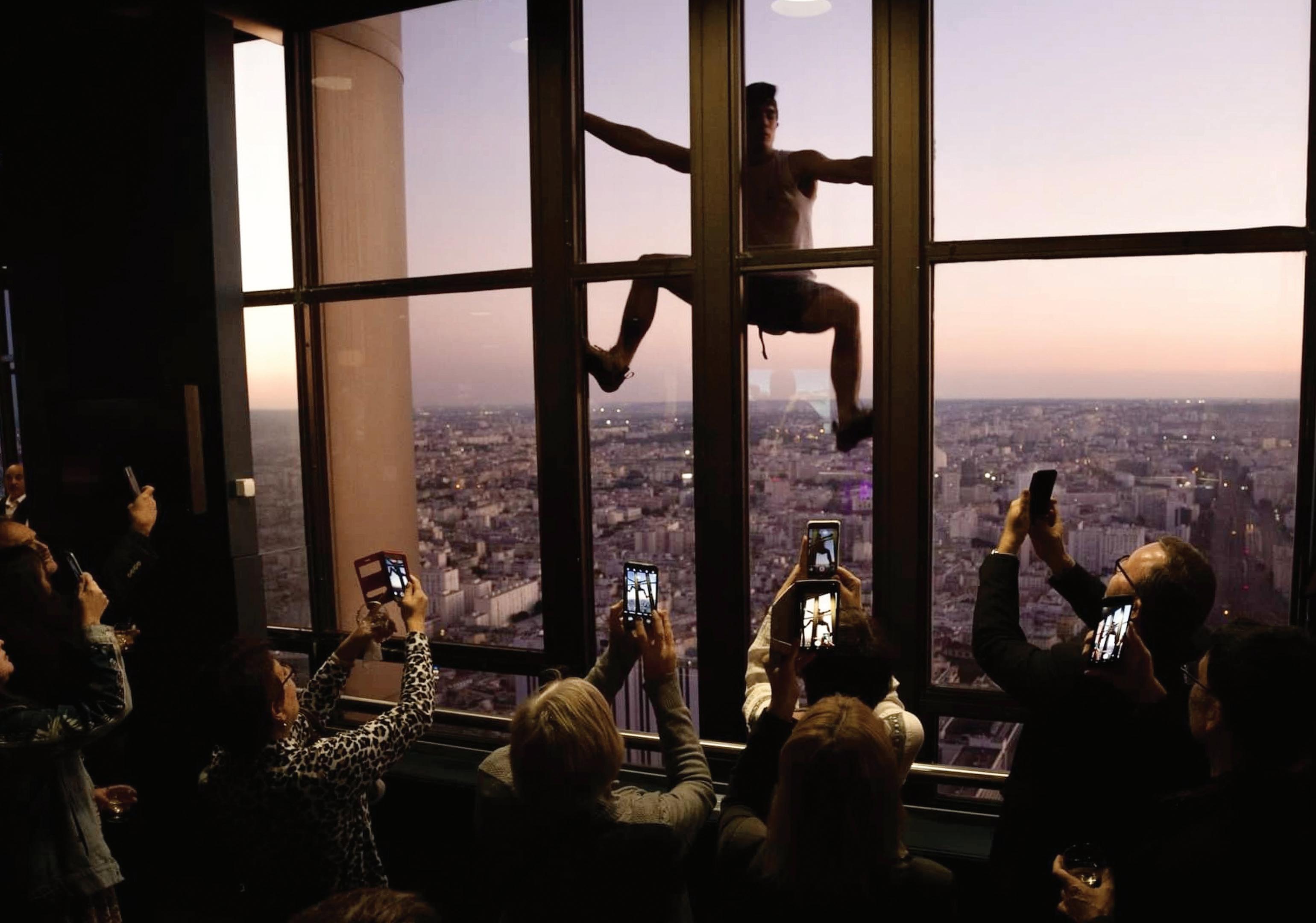

Scaling new heights

Specialist SVoD documentary streamer Spicee is seeking AVoD and FAST partners as it pursues its mission to provide young documentary makers with a pla orm alongside Sunny Side of the Doc.
By Gün Akyuz
Dubbed ‘Vice with Virtues’ when it arrived in August 2015, specialist French documentary SVoD streamer Spicee has moved away from its originalsdriven launch strategy towards a slate led by acquisitions, supplemented by coproductions and prebuys. It is also looking at diversifying into the AVoD and FAST space in response to saturated market conditions.
Back in 2016, Spicee’s objective was to concentrate on a curated slate of in-house productions featuring fact-based, responsible journalism, supplemented by acquisitions and the creation of ‘glocal’ content and distribution partnerships worldwide. Today, that model has flipped to 90% acquired content and a distribution strategy concentrated in France.
“Our content mission and who we target hasn’t changed,” says Spicee’s director of operations, Guillaume Lyonnais. “We’re still targeting doc lovers in general, and people who are interested in understanding the world, and we cover a lot of topics, but we have three core content pillars: investigative journalism, original life stories and lifestyle.
for two types of content. Historically, we offered a lot of content about war, jihadism and terrorism, which was more traditionally male-skewing. We now also offer a lot of subjects about women’s rights and empowerment and the environment, which are more female-skewed,” says Lyonnais.
Spicee, which costs €4.90 (US$5.25) on a no-commitment monthly basis, is distributed OTT in France via its app and/ or website, in partnership with platform operator VOD Factory, which also facilitates its distribution on Amazon Prime, Orange and Molotov.tv. An edited-down version of Spicee is also available in Belgium and Switzerland.













As it explores partnerships in AVoD and FAST, its biggest challenge is the saturated streaming sector with its plethora of platforms, says Lyonnais. Specifically, Spicee is looking to offer productions from its originals catalogue, amounting to several hundred hours of content, in partnership with AVoD or FAST channels and platforms.











“A lot has changed in the documentary and streaming landscape in that time and it’s a lot more competitive now, so the focus is on our territory and to bring content from all over the world to our audience. We’re also proposing shorter formats we can self-produce with our team of journalists, but the vast majority of our content is acquired.”





distributors or sales agents who have titles with

audience. We’re also proposing shorter formats we can to 40-year-olds and is now slightly more





“We’re open to discussions with AVoD, FAST partners and FAST channels and also distributors or sales agents who have titles with AVoD rights available,” he adds. “Especially in France, AVoD and FAST is still quite a new territory and everyone is exploring it little by little.”









territory and everyone is exploring it little by little.”






Spicee’s audience has aged down over the years, thanks partly to its selection of “engaged” content about environmental issues and social justice. The streamer currently attracts a core audience of 25to 40-year-olds and is now slightly more female-skewing.
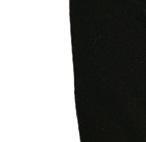




“The idea is to bring as much diversity to [the service] as possible,” Lyonnais explains. “We’re currently prioritising geopolitics and social issues, but we’re also interested in ‘crazy’ stories.”


“We have defined two audience groups


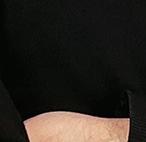









prioritising








The latter can include projects that help viewers understand the world they live in but also ones that
projects that help viewers live in but also ones that Guillaume Lyonnais



it’s
show the “diversity, the engagement, fun, charisma and the incredible people around the world fighting for their rights or for the planet, or sometimes even just for themselves,” he says.
Among Spicee’s top-performing titles of 2024 so far is four-part doc The Dark Web, made by Filipino director Ericson Gangoso with CNA (fka Channel NewsAsia) in 2019. Spicee acquired the series as a French premiere, given the docuseries’ close fit with its content mission.
Other close fits are the trending show Dark Side of Algorithms (1x90’), a FrenchGerman copro directed by Dorothe Dörholt that examines the impact of social media and technology on people’s lives, and Canadian single doc Smart Drugs: The History of Hacking Your Brain (1x52’), directed by Ann Shin and coproduced for CBC’s Documentary Channel.
A few of Spicee’s highest performing titles also hark back to its early originals archives, says Lyonnais, citing Lève Toi et Marche (Arise & Walk, 1x83’), a Spicee original from 2016 made by its then editor-in-chief Matthieu Firmin about his life as a paraplegic following a stroke; 2016 production Salafistes (1x140’), exploring jihadism; and award-winning Rupture(s) (1x60’), a Spicee exclusive released in 2021 and the streamer’s top performing title.

The latter show, from young director Arthur Gosset and coproduced by Hélène Cloitre and campaigning organisation Séisme, examines the generational crisis of young people searching for a purpose in their working lives, against an impending ecological emergency and societal breakdown.
One of Spicee’s goals is to give young directors a public platform for their work. Last year saw Spicee partner with annual documentary market Sunny Side of the Doc (SSOD), with the winner of its Concours Spicee competition for emerging directors aged under 30 attending the market to showcase their five-minute film and meet documentary professionals. The SSOD partnership continues this year.
“It’s a great opportunity when you’re making your first doc to get a chance to present your film, get feedback or talk about other projects with professionals,” says Lyonnais, adding that Spicee is keen to expand its own selection of first documentaries available on the platform to help young creatives launch their careers and reach more people.
Last year’s Concours Spicee winner screening at SSOD was Blues Palladium. The five-minute doc, co-directed by Marie Gasnier and Jules Pilorge, was an homage to legendary music club Bus Palladium in Paris’s Pigalle district, which was being demolished to be replaced by a luxury hotel.
In addition to its young talent partnership, SSOD also “helps us connect with new content makers and sales agents, find new content and discover incredible documentaries,” says Lyonnais. “We’re still looking for content from all over the world, as long as the topic feels relatable to a French audience.”
Regular content partners include Journeyman Pictures, Sideways Film and Zed, but Spicee is keen to discover new distributors and new catalogues, says Lyonnais.


Upcoming launches for Spicee include a topical film it has coproduced that will premiere at this year’s SSOD. Silicon Desert (1x52’) tackles the environmental impact of fast-growing tech cities that have become disconnected from their natural resources. It also explores solutions to address the problem. Bangalore, for instance, is forecast to run out of water for its 13 million residents by 2030.
The film, directed by Sébastien Daycard-Heid and Bertrand Dévé, is produced by French prodco Yes Sir Films, with whom Spicee collaborates regularly. Spicee has French SVoD rights and is also selling the film internationally in exchange for its equity in the production as a coproducer, says Lyonnais.
Launched at the end of May was Vertige Moderne (1x48’), a self-produced film by young director Etienne Millet about French urban climber Alexis Landot. The film follows Landot over a three-year period in cities such as Paris and Dubai, as he masters the art of climbing skyscrapers with his bare hands and without safety gear.
Spicee’s content needs remain centred on investigative journalism, life stories and lifestyle, says Lyonnais. Within that, he highlights a need for more topics around media literacy and the impact of technology on people’s lives. The environment also remains a high priority, as well as stories about individuals who are actively engaged in or campaigning on such issues. Spicee looks for docs that offer solutions or possible positive outcomes, as well as an analysis of what’s happening, adds Lyonnais.
Spicee adds a new title to its offering once a fortnight. It operates a flexible year-round acquisitions policy and is now looking for titles for the last quarter of 2024 and after. It will also pick up shows at short notice and is open to prebuys, but selects only a few each year.
Most of Spicee’s acquisitions are non-exclusive and it prefers to take rights for 24 months. Occasionally, titles are picked up as exclusives as part of events created within its line-up or are something that “just really fits with our identity,” Lyonnais adds.
Lyonnais advises content suppliers and creators to pitch to Spicee via email at contact@spicee.com. Projects can range from those in early development to finished films. A one-page treatment, plus a teaser if available, is preferable to a full dossier. “We’ll try to send feedback as soon as possible. If it doesn’t fit us, we’ll suggest others who it might,” says Lyonnais.



“ The
idea is to bring as much diversity to [the service] as possible. We’re currently prioritising geopolitics and social issues, but we’re also interested in ‘crazy’ stories.
Guillaume Lyonnais Spicee
Channel21 International | Summer 2024 CONTENT STRATEGIES: Spicee 19
Above: Silicon Desert looks at the environmental impact of fast-growing tech cities. Left: Rupture(s) follows a group of students taking climate action and challenging the system.
Criminal convictions

Viasat World is eyeing further expansion into CEE markets and aims to buck the trend in linear with the launch of a new pay TV channel focusing on the ever-popular true crime genre. By
Gün Akyuz
Specialist pay TV broadcaster Viasat World has enjoyed sustained growth in Central and Eastern Europe (CEE) over the past year with its core linear portfolio of channels and recent launch into free, ad-supported TV (FAST). It is now poised for further expansion with the arrival of a new linear pay TV channel in the true crime space.
Pointing to rises in average time spent and deepening engagement across the majority of its linear channels in most markets, VP of content strategy and planning Stephen Roberts says pay TV continues to o er great value compared with the number of individual SVoD subscriptions faced by consumers.
Viasat World’s main task, however, remains “consolidating our channels around a number of core content pillars,” says Roberts of Explore, History, Nature and Epic Drama. “We know our heartland, we have a number of content suppliers that we can work with and we feel quite secure in that. Within those core pillars, we’re always looking

“We still see room for growth for pay TV in our markets. It represents extraordinary value and that value shines even more brightly in these slightly more economically challenging times,” he says.
The group’s new linear channel Viasat True Crime is due to premiere in Poland in early June and talks are also underway with a number of distributors for a wider CEE rollout. It aims to stand out in the crowded true crime space by o ering a triple-play of genres, featuring classic true crime documentaries, reality crimefighter shows and true crime drama.
“I don’t think there are many platforms launching new linear channels right now,” Roberts observes.
Viasat World’s portfolio includes nine spanregional acquisitions-driven linear pay TV channels in 24 countries across CEE, Scandinavia, the Baltics and Turkey. Last October, Viasat World launched into the FAST sector in Sweden, Norway and Denmark, with iterations of its factual channels Explore, History and Nature on the Samsung TV+ platform. The group is currently exploring a FAST presence beyond Scandinavia, although no developments have been disclosed so far.
“FAST is still relatively new ground to us and we’re reviewing the data,” says Roberts. “We launched well and we’re broadly maintaining that performance. The question now is how to evolve in that space as we learn more about the audiences, and how to grow in terms of distribution.”
As a distillation of its pay TV o ering, its new FAST channels o er a good shop window, says Roberts. “It’s a complimentary ancillary part of our business we absolutely should be on and, as markets evolve, we’ll see where we are, but pay TV remains extremely viable for us and is really the core of what we do.”
“bit disruptive. We want more jeopardy, we want more entertainment. That’s probably the channel that we’re most able and willing to stretch a little.”
Meanwhile, Viasat History remains built on Second World War content along with the latest revelations in “evergreen” historical subjects involving ancient civilisations such as Rome, Egypt and the Vikings.
We still see room for growth for pay TV in our markets. It represents extraordinary value and that value shines even more brightly in these slightly more economically challenging times.
Stephen Roberts Viasat World
for something with a new twist that elevates and enhances a franchise.”
A recent launch was the latest season of Treasures with Bettany Hughes, from DCD Rights. “She brings her usual warmth and relatability to it, with all of her fascinating insights of the ancient world. What’s so fantastic about that series, beyond the talent and the production, is she’s visiting countries
The group acquires around 800 hours per year, including pre-buys and the occasional copros, across its factual channels and Epic Drama. Pre-
The group acquires around 800 hours per year, including pre-buys and the occasional copros, across its factual channels and Epic Drama. Prebuys account for up to 20% of that, although levels vary from year to year and by channel. A further 500 hours are acquired for Viasat World’s five film channel brands: Viasat Kino, Action, Comedy, ViP MegaHit and World.
Viasat Explore focuses on a mix of largely maleskewing factual entertainment franchises built around “treasure, trucking and trawlers,” like Aussie Gold Hunters. However, it has been building more co-viewing opportunities with the help of female-led titles like Backroad Truckers
around “treasure, trucking and trawlers,” like . However, it has been building more co-viewing opportunities with the help of and

within our footprint,” says Roberts. Highlighting S4, which includes Turkey, Estonia and Bulgaria, he adds: “We’d love to see productions exploring the rich history of our territories.”
For the channel’s core WWII audience, coming in June is a big event commemorating the 80th anniversary



A popular returning theme is Viasat Explore’s fishing season in the second quarter, which “resonates really well in the CEE market,” says Roberts, citing shows like Monster Carp Grand Fishing Adventures from TVF International.







Ancient Rome drama Domina brought in a good deal of audience feedback

Explore is also the group’s most “elastic brand”, with more room to take calculated risks and test new genres, says Roberts. Past experiments on Explore have included comedy-driven fact ent shows like the UK version of Taskmaster and BBC show Bootcamp, although neither landed particularly well with local audiences.
Explore is also the group’s most “elastic brand”, with more room to take calculated risks and test new genres, says Roberts. Past experiments on Explore have Tribal

“If there’s an adrenalin-fuelled, high-stakes challenge competition character at the heart of it, we want to know about it,” he says. “We’re also happy to lean into an overtly more entertainment space. We’re not afraid of being a bit daring and a
space. We’re not afraid of being a bit daring and a


20
CONTENT STRATEGIES: Viasat World Channel21 International | Summer 2024
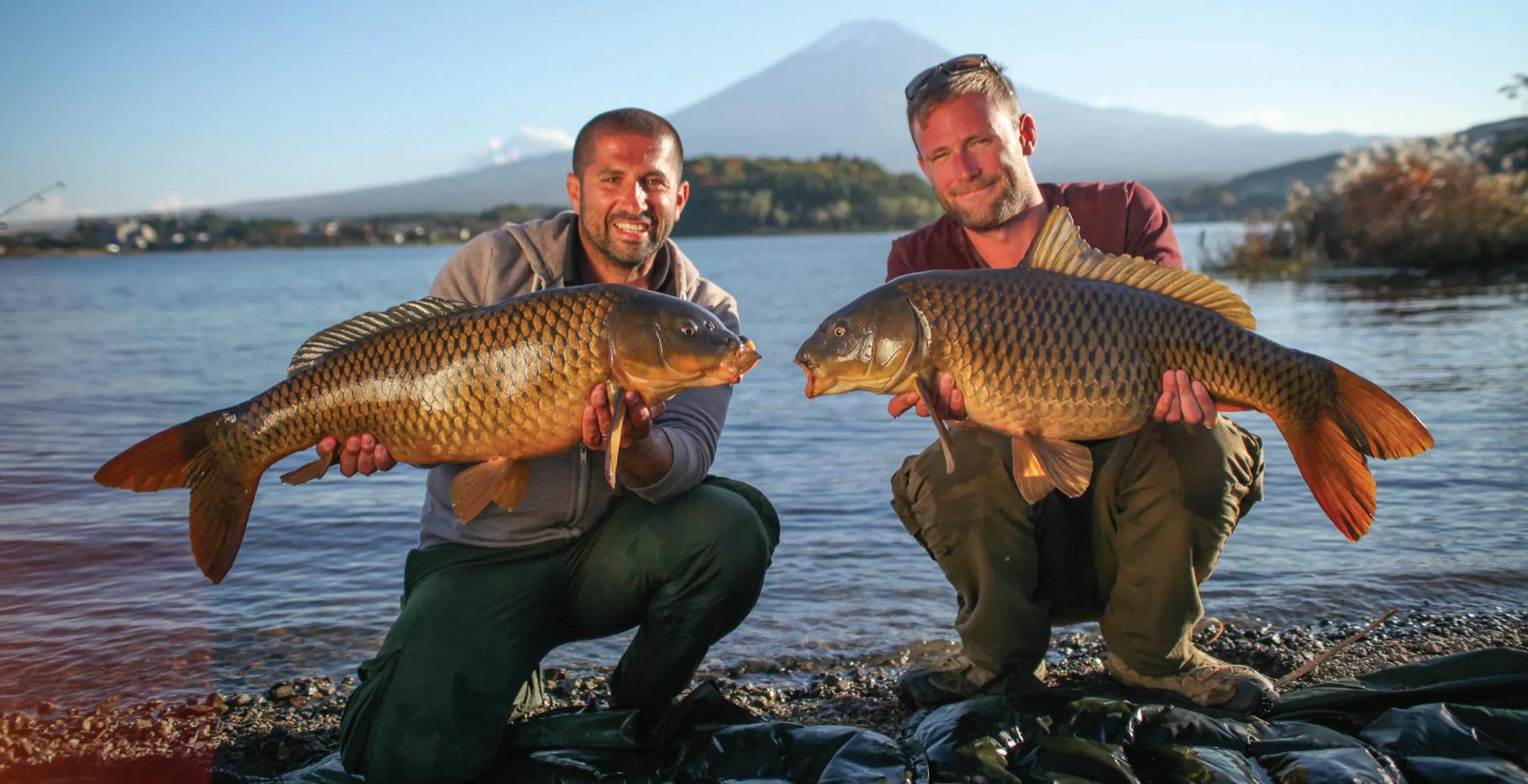
of the D-Day landings, and including docs like two-parter D-Day: The Soldiers’ Story from 3DD Entertainment, and D-Day: 80th Anniversary from Espresso Media.
The channel is now preparing to mark next year’s 80th anniversary of the end of the war. “We’re very keen to hear from people who have projects in development and, using that as a point of departure to explore more about the Cold War as well, which is hugely relevant to our territories,” says Roberts. History’s wishlist also includes shows leaning into factual entertainment. “We’re looking for some more presenterled, hands-on history shows, particularly around war and warcraft and mystery adventure shows,”

Roberts explains. “It’s about balancing the more traditional documentarian approach, which is important to us, with more vibrant






factual entertainment. We probably don’t get enough of the vibrant factual entertainment coming our way for Viasat History.”
Viasat Nature is also enjoying sustained success, with growth in viewing driven by its investments in blue-chip natural history shows from suppliers such as Blue Ant, among others, says Roberts. While its pipeline remains secure, it is looking for a big returning series.











Epic Drama’s successes remain focused on period crime drama, among them Agatha Christie’s Vienna Blood and Dalgliesh, costume dramas like Sisi and period vet All Creatures Great & Small




Recent additions to Epic Drama in Q1 this year included Victorian thriller The Doll Factory, acquired from Cineflix Rights, and both seasons from Banijay. Roberts points to a lot of positive audience feedback for the show, and hopes it will go to S3. Another hit was S4 , which is a show Viasat World helped nurture from the start, he says.
Meanwhile, Cary Grant biopic Archie, from ITV Studios, launched in May. The exec is especially keen for producers to approach Viasat World at the pre-buy stage. “We have a really strong track record of helping to grow quite a few big international brands right from the get-go, so any show that comes to us sits within a firmament of big global hits.”
Pitches can be “crime, courtly intrigue, swords and sandals or family sagas. We mostly do shows with a bit of scale and sizzle,” Roberts says. It could also be a cosy drama like All Creatures Great & Small. “If the wit and the warmth is there, then absolutely, we’ll look at that as well.” While conceding that increased competition and the current slowdown in scripted production has made the pipeline for new scripted projects harder for Viasat World, Roberts adds: “Reminding the content community of Epic Drama’s credibility and track record is probably quite important, and making sure we’re considered and part of the conversation at an early stage is valuable to us, and potentially valuable to them as well.
“We’re never going to be a dominant financial partner in any big drama; we’re not ITV. But there’s always that potential we could do something. We have a solid pipeline with some fantastic, trusted partners, so it’s more about how we enhance it and how we secure the next big thing.”



Viasat World’s appetite to expand into new areas and take a few calculated risks is built on solid foundations, says Roberts. “We’ve worked hard to develop our content pillars. A phrase we use often internally is ‘evergreen.’ It’s about evolving that space so it stays interesting and at the cutting edge of evergreen, if there is such a thing. It’s about how we represent them, bring new information, bring new insights and understandings. That’s mostly what we’re about in our factual space,” he explains.
Channel21 International | Summer 2024 CONTENT STRATEGIES: Viasat World 21
investments
Above: Fishing shows like Monster Carp resonate in CEE. Left: Victorian thriller The Doll Factory. Below left: Treasures with Bettany Hughes
particularly
around war warcraft
coming
our way for Viasat History.”
Marple, Vienna Blood dramas series of Roman drama Domina of Miss Scarlett & the Duke World helped nurture from the start, he says.
CEE21.com The new digital publication from C21Media covering the Central & Eastern European content business. Navigate The New Content Economy
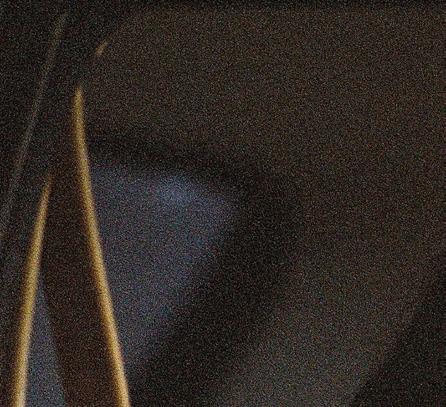
Spy/Master was coproduced by Romania’s Mobra Films



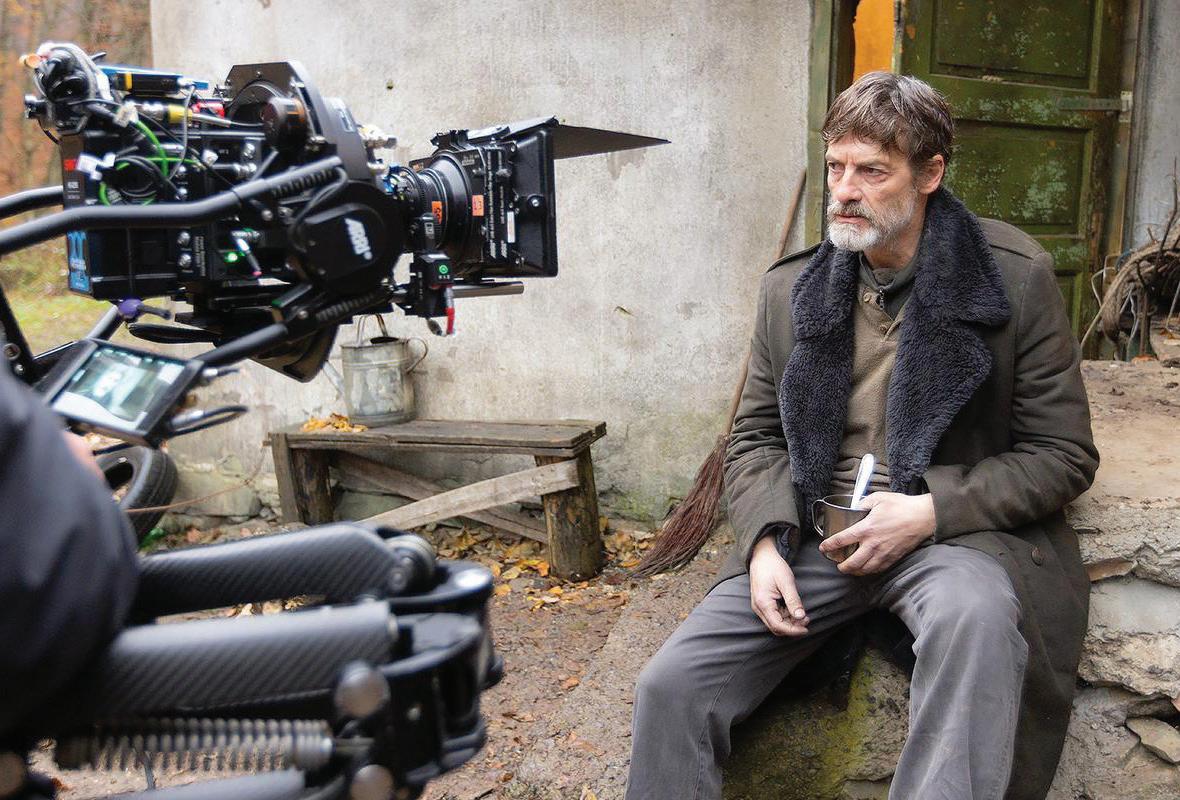
Which region is showing constant improvement when it comes to the quality of its drama series? Look no further than Central and Eastern Europe (CEE), according to Vivek Lath, MD at Indian distributor GoQuest Media.
The Mumbai-based outfit began looking at global drama trends in 2018 and, since then, CEE is “a clear winner,” says Lath, who has overseen the addition of a host of scripted series from countries such as Ukraine, Romania and Serbia to the company’s sales catalogue.
After Netflix shows such as Money Heist and Squid Game helped to pique viewer interest in international dramas, there has been increased demand for CEE series among buyers, says Lath.
“A lot of our clients wanted shows that presented a unique view of a country or culture,” he notes. “The success of Money Heist and Squid Game triggered many of our clients to allocate budgets to shows coming from international markets.”
Meanwhile, the continued popularity of Turkish drama means some buyers have been priced out, so scripted content from CEE can often be “the next best option,” says Lath, adding: “The market has seen increased demand for CEE dramas, but it could have been much more if not for the turbulent times in Ukraine.”
Russia’s full-scale invasion of Ukraine in early 2022 rocked the international content community. The actions of the Russian government led to many companies – but not all (GoQuest, for example, attended a TV market in Moscow in mid-2023 under an Indian pavilion) – cutting ties with Russian producers and distributors in protest.
“On the supply side there was a huge impact. Ukrainian producers were going from strength to strength. We were anticipating that Ukrainian content would have the most demand from international markets,” says Lath. “The demand did not go down but, in our opinion, the growth would have been much more if not for the war. Audiences outside Europe would have had more chances to experience content from CEE and build subsequent loyalty and affinity. Buyers, on the other hand, needed consistent quality supply to effectively monetise audience affinity.”
Lath hopes the supply of drama from CEE will increase in the coming years, pointing to markets such as Poland, Greece, Croatia, Serbia and the
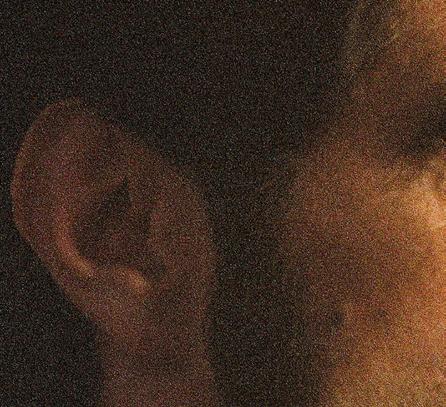

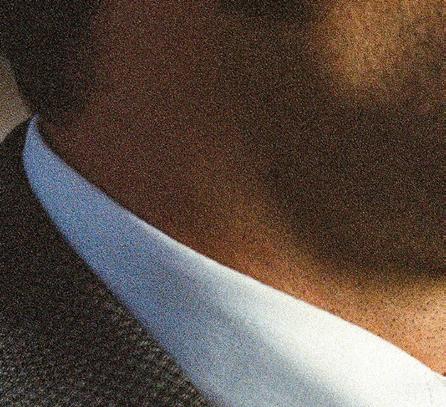




Wait and CEE

With landmark coproductions emerging between Western Europe and Central and Eastern Europe (CEE), is the industry any closer to a formal alliance encouraging scripted collaboration across CEE?


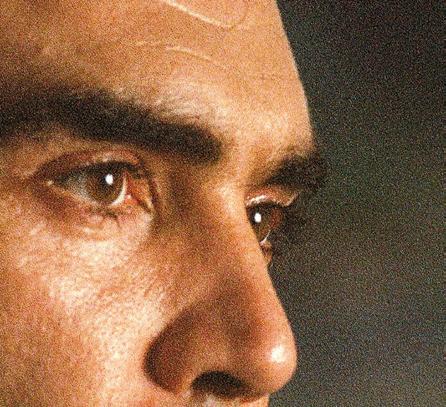


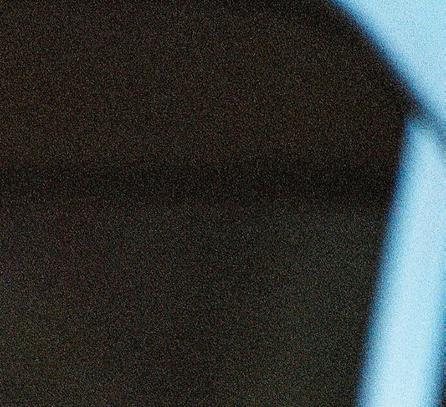

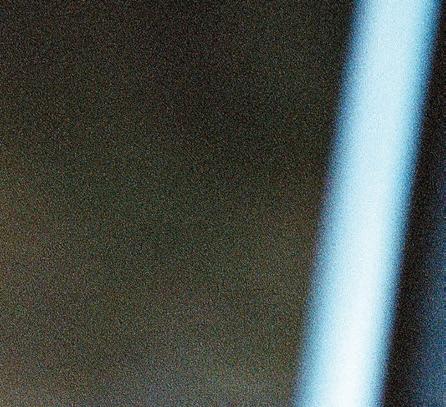

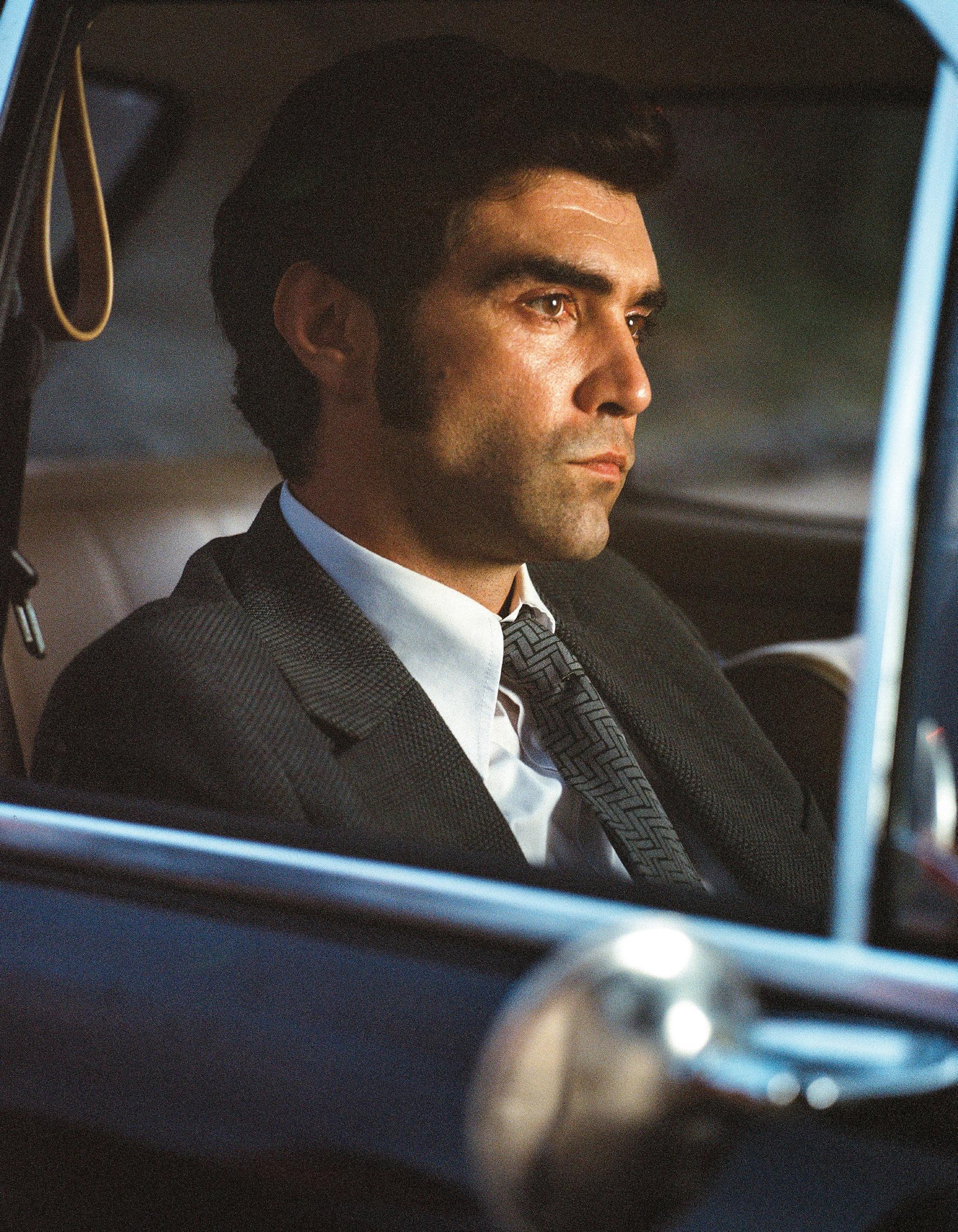
Czech Republic as sources of new shows, with the company looking to replicate the sales success it had with Ukrainian hit Ruby Ring




 By Nico Franks
By Nico Franks
Most Ukrainian dramas in 2024, however, strike a radically different tone from pre-invasion productions like Ruby Ring, with the day-to-day realities of war reflected alongside characteristic Ukrainian dark humour, as seen in Those Who Stayed (6x30’), the anthology series from Ukraine’s Film.UA Group in coproduction with public broadcasters SVT in Sweden, YLE in Finland and NRK in Norway.
In Her Car (10x30’), meanwhile, is a Ukrainian war drama coproduced by Starlight Media and France’s Gaumont. Other partners on the project include Germany’s ZDF, France Télévisions, Switzerland’s SRF, Finland’s YLE, Denmark’s DR, Norway’s NRK and Sweden’s SVT. Beta Film has been handling international sales and the series has so far been sold into markets such as Japan, Latvia, Slovakia and Austria.
Meanwhile, France’s Mediawan and Israel’s Keshet are among the other distributors to have added CEE series to their libraries recently as the industry looks for alternatives to the so-called ‘Moscow noir’ genre that emerged during the pandemic.
Channel21 International | Summer 2024 AHEAD OF THE CURVE: CEE copros
Spanish-Serbian drama Cicatriz (Scar)
Olena Martynova, chief marketing officer at Starlight Media, describes coproductions as “a very important direction for us, because it is about investment by partners who can help us make a big project. But it also has an ideological aspect because, for Ukraine, it’s a very big challenge to go to the European and international markets and cut off relationships with the post-Soviet market.”
Martynova singles out the Nordic model, where countries in the region have shown how effectively they can work together on the international stage, as one to which CEE players should pay attention. She also points to the Ukrainian Content Club, which launched soon after the outbreak of war with a US$20m fund to invest in Ukrainian drama and received further investment from the international market. “We should find our own way to collaborate, [both] inside our country and with neighbours who are close to us in a cultural and economic context,” she says.
Formal CEE coproduction alliances similar to those that are increasingly popular in Western Europe remain something to aim for rather than bank on, according to Aleksandra Martinović, director of the multimedia division at Telekom Srbija. “Our region has passed through very difficult times. But I really believe culture and the screen industries are a bridge that can connect us. We are thinking in that direction and we consider it crucial for us to compete with very developed countries all around the world,” says Martinović.
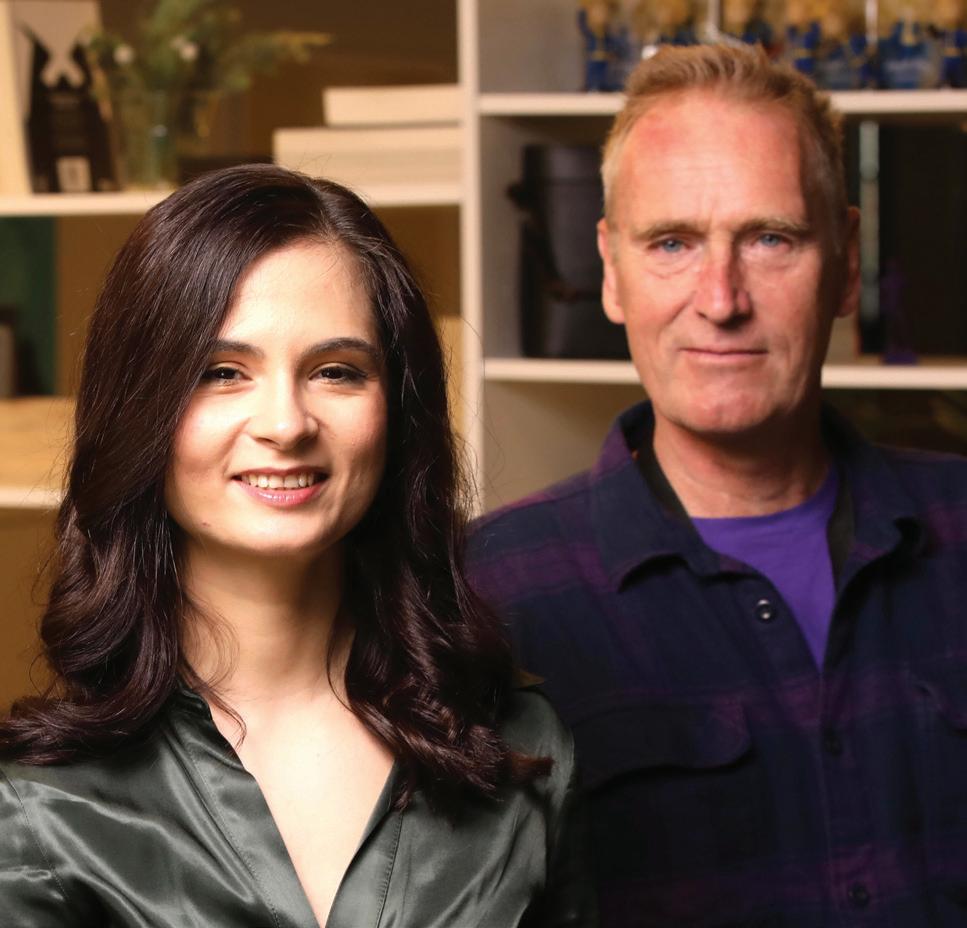

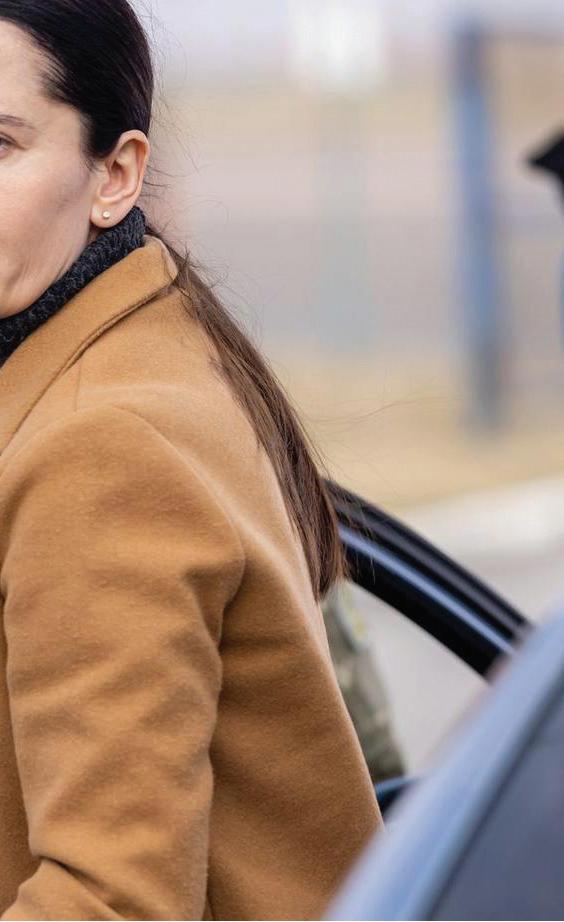
Master coproducer Mobra Films of Bucharest. The first Romanian original from the global streamer, the show follows a mother who works in IT and starts fighting undercover against the criminals of Bucharest.
Anna Nagler, director of local-language series for Netflix in CEE, has described Subteran as a fast-paced, captivating and “slightly absurd” crime series. At the time of writing, Young and Pavel can’t reveal more about the show, beyond confirming it is consistent with the high-stakes, fast-moving entertainment that Romanian audiences can’t get enough of.
The state-owned Serbian telecommunications company, which has been growing its original production activities over the past five years, is a major presence not only in Serbia but across CEE. The company’s strategy to begin making domestic high-end series and coproducing high-
profile projects with international partners has led to eight-part thriller Cicatriz (Scar), the first high-end Spanish-Serbian drama. Martinović was at Series Mania in March to discuss the project on a panel alongside execs from fellow coproducers Asacha Media, Dopamine, Plano a Plano and Serbian producer Adrenalin.
“Our strategy goes in two directions. The first is to maintain and upgrade our status as the largest and biggest producer in the Adriatic region. And the second goes towards the internationalisation of our content through cooperations. Scar is proof of what we can achieve when we join forces with partners such as RTVE and Amazon Prime,” says Martinović.
RTL Group in Hungary and Canal+ Poland have also joined the project, which stars Serbian actor Milena Radulovic, Spain’s Juanlu González and Polish actor Maciej Stuhr, hinting towards further pan-regional collaborations across the CEE region.
During Young’s time at HBO, his executive producer credits included award-winning Polish series Wataha (The Pack), Romanian-German international coproduction Hackerville and, most recently, the Cold War espionage drama Spy/Master, which has since been picked up by the BBC in the UK. “We’re very interested in coproduction, but we know what it’s like to be pitched to,” says Young. “The first question we ask ourselves is, ‘What’s in it for the people we’re pitching to?’
We want to make something that touches a Romanian audience but, if we’re making it with Germany or the UK, it really must feel German or British too.”




“ Our region has passed through very di icult times. But I really believe culture and the screen industries are a bridge that can connect us



Aleksandra Martinović Telekom Srbija

Opportunities for cross-cultural exchanges remain plentiful in CEE, and Johnathan Young, the former VP of original programming for HBO Max in EMEA and production in CEE, is keen to continue the work he did at HBO Europe to foster creative links in the region. Young launched Bucharest-based May One earlier this year alongside former HBO Europe exec Ioanina Pavel to develop, produce and provide creative partnership for high-end series shot in Romania, working with established and new talent from both within and outside the country.









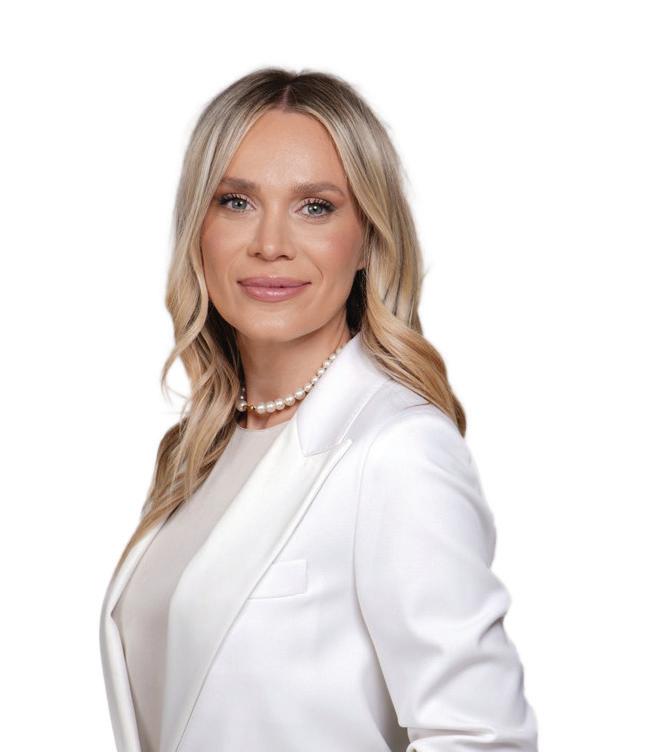
and production in CEE, is keen to continue the work he did at HBO Europe to foster creative links
May One earlier this year alongside former the Subteran, announced in October last ur us.
Pavel believes the CEE market remains hamstrung by the relative lack of funding, subsidies and resources from the state available to local producers compared to their counterparts in Western Europe, all of which make a scripted alliance across CEE a challenge. This is shaping May One’s approach to copros, adds Young. “Rather than regarding coproduction as an opportunity to raise the budget to make a Romanian show, which is one model, we’re trying to think of genuine coproductions where you’re creatively aligning with someone who has as much passion about the project from a creative point of view as you do and as much input as you do.

Its first commission, currently shooting and starring Ana Ularu and Florin Piersic Jr, is the original Netflix series , announced in October last year and produced alongside Spy/
“The UK and US can sometimes think of Central Europe as a homogenous region, but that’s to do with the communistic past. If you go back before that, the countries have different histories, expectations and senses of their place in the world. These don’t always align when it comes to copros, while the languages are a little bit different. And as Ioanina says, there’s less money – that’s the real problem.”
AHEAD OF THE CURVE: CEE copros Channel21 International | Summer 2024 24
Ukrainian war drama In Her Car
May One’s Ioanina Pavel and Johnathan Young
Olena Martynova














































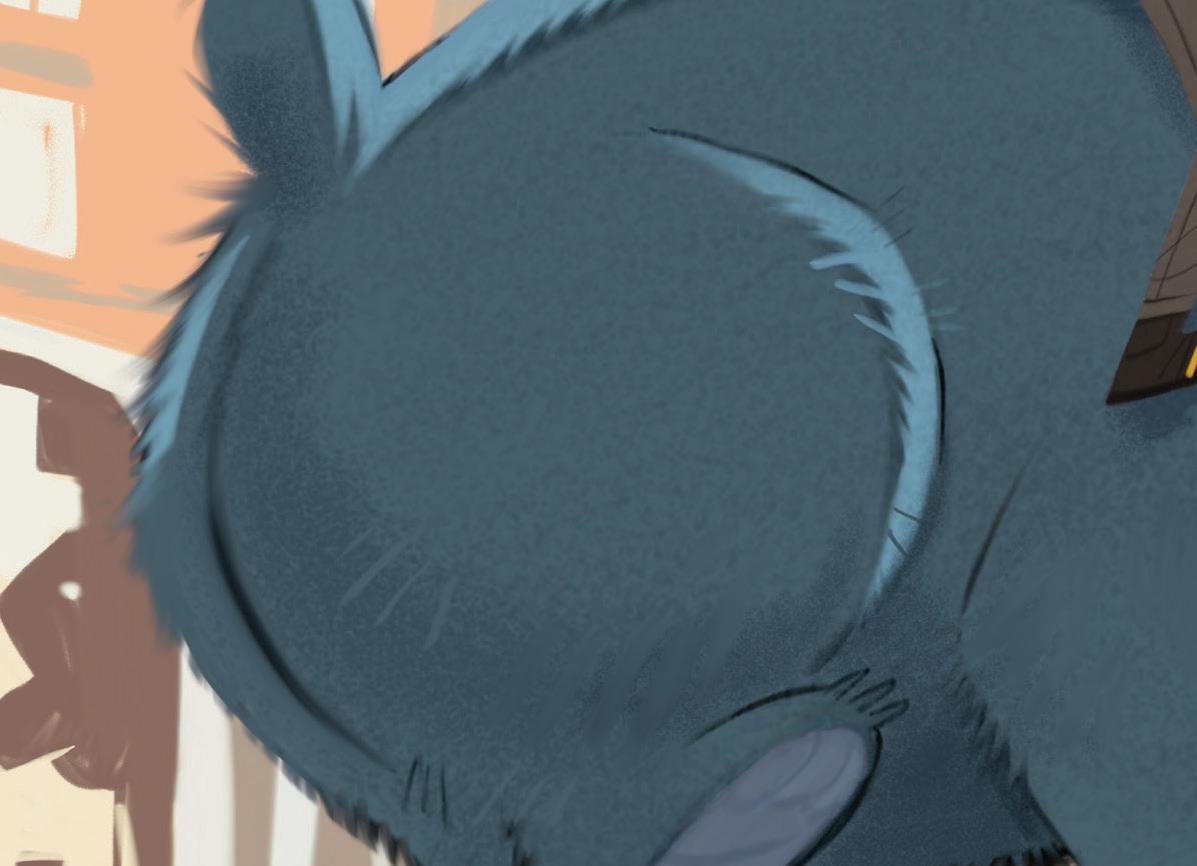










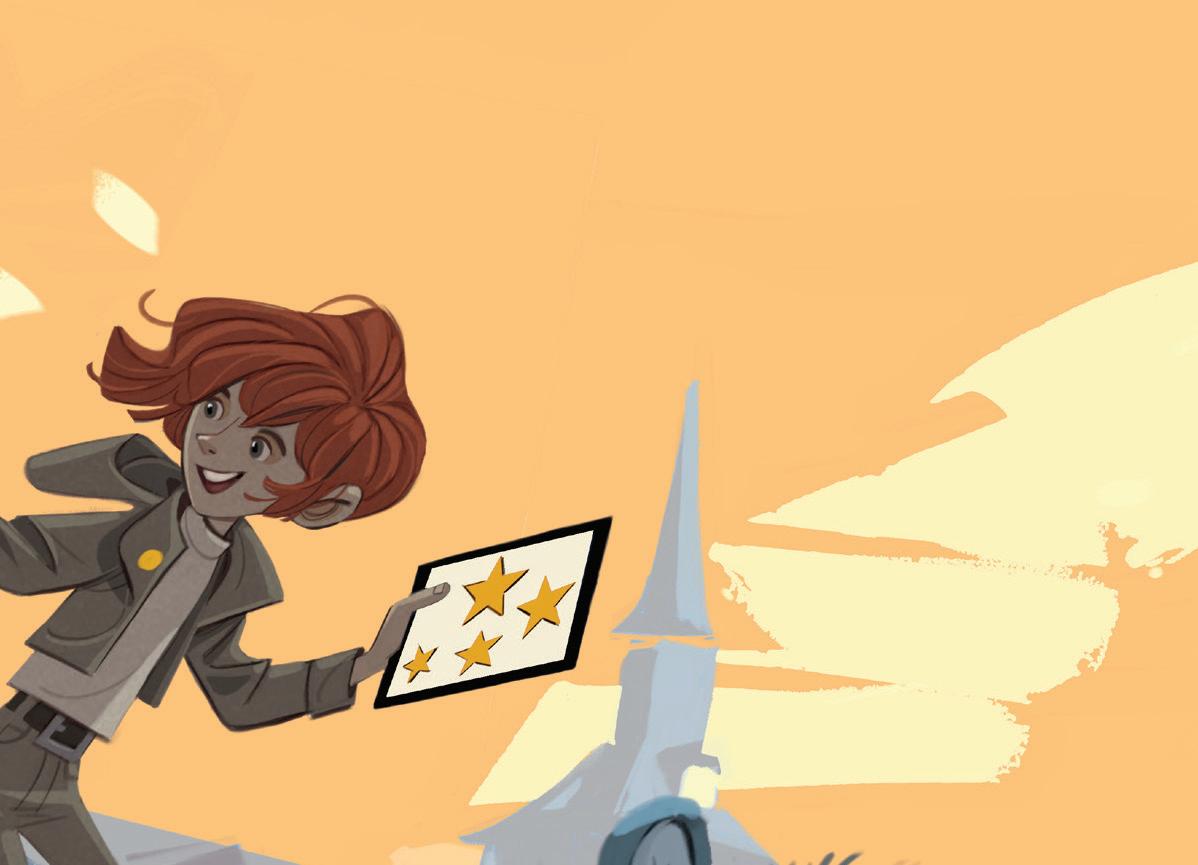
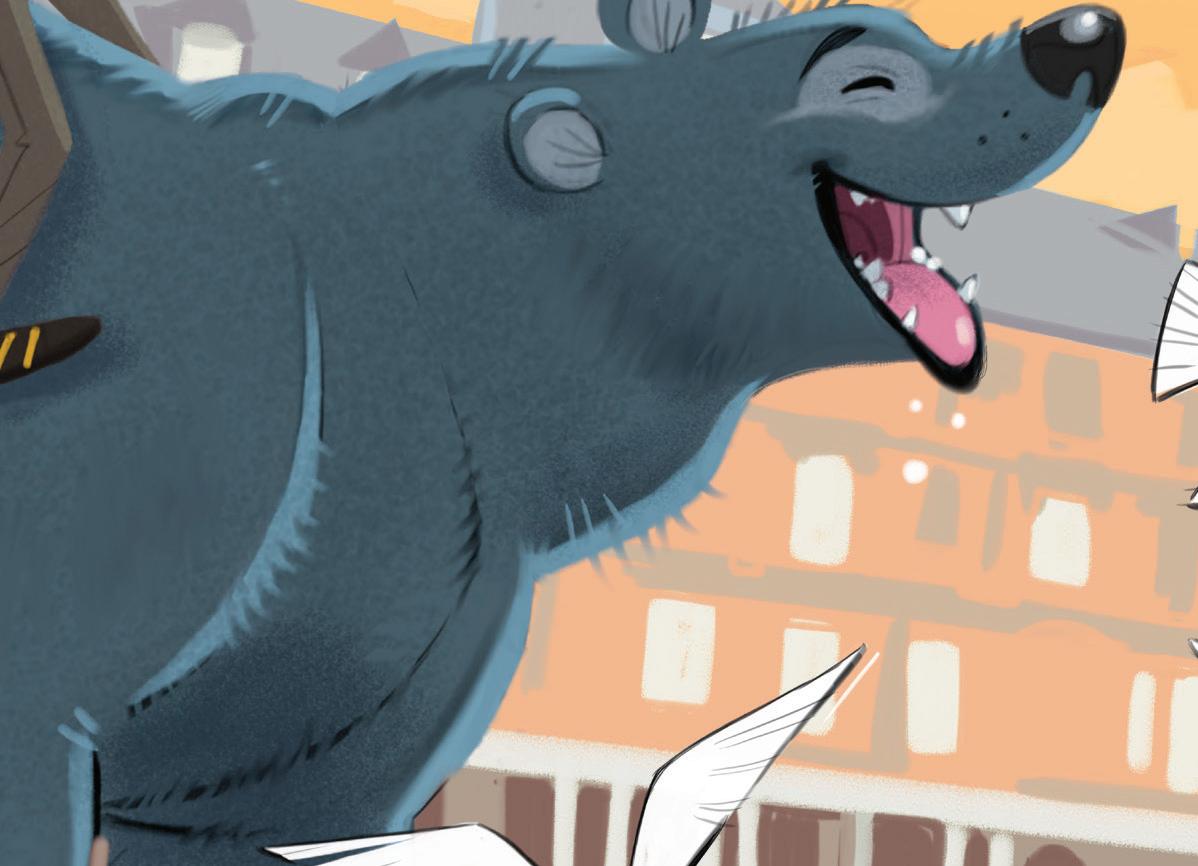




THE PITCHING EVENT FOR YOUNG TALENTS





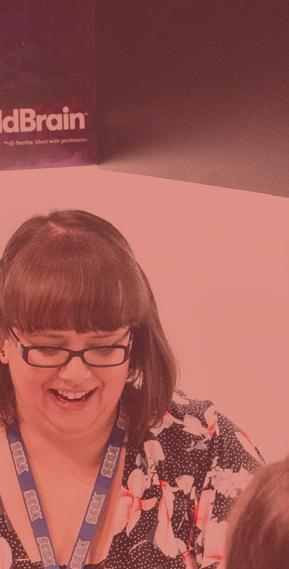




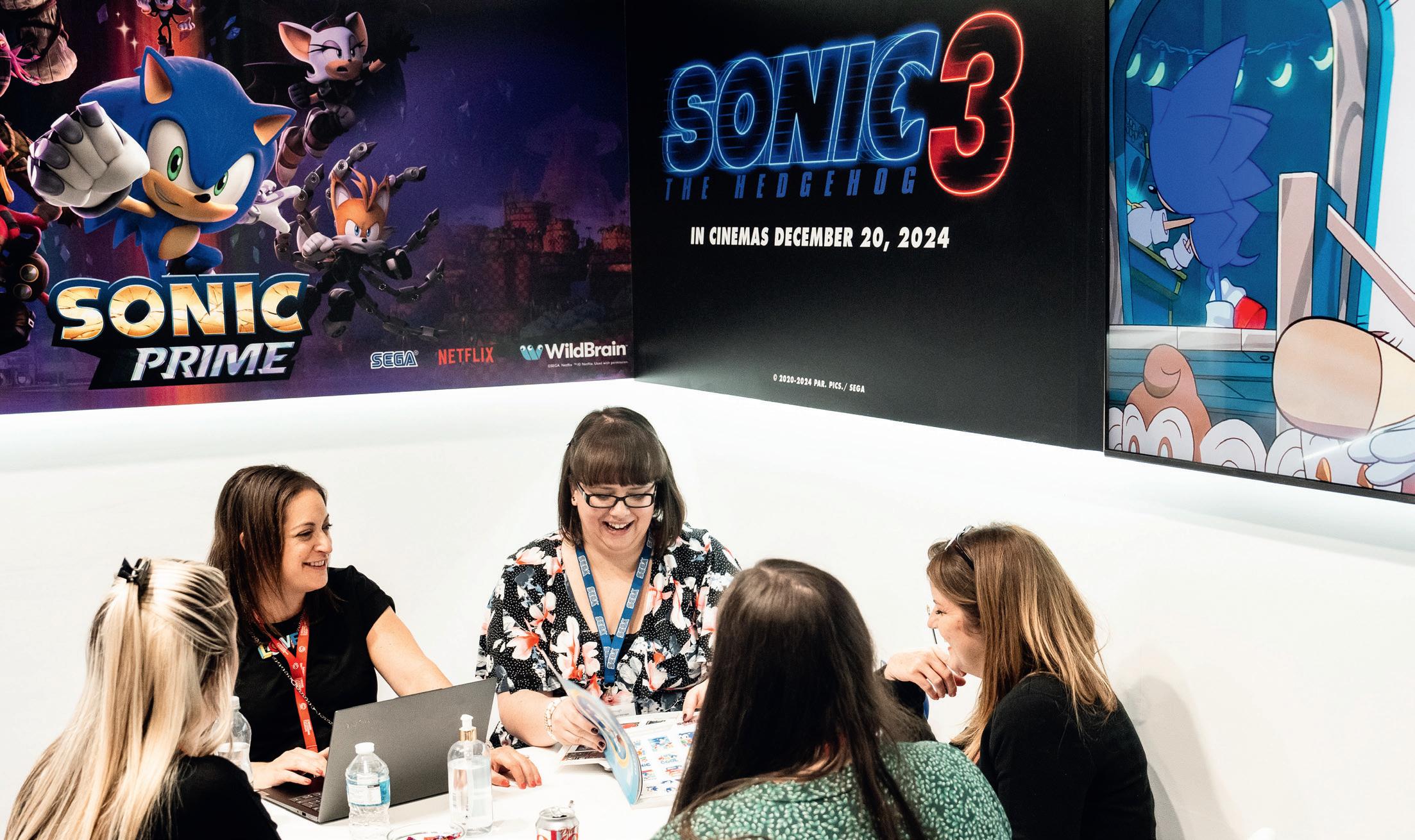







24-26 September ExCeL London brandlicensing.eu ENHANCE YOUR PRODUCT LINES WITH LEADING BRANDS Collab with brands to get your products on shelves all around Europe 2024
In February, SkyShowtime announced its first original commission in the shape of Śleboda, a Polish series based on acclaimed crime novels by Malgorzata Fugiel-Kuźmińska and Michał Kuźmiński.
The commission came less than a year after SkyShowtime extended its pan-European streaming service into Central and Eastern Europe (CEE). It was also less than six months after Kai Finke’s appointment as chief content officer at the company, which was launched as a joint venture by Comcast and Paramount Global in September 2022.
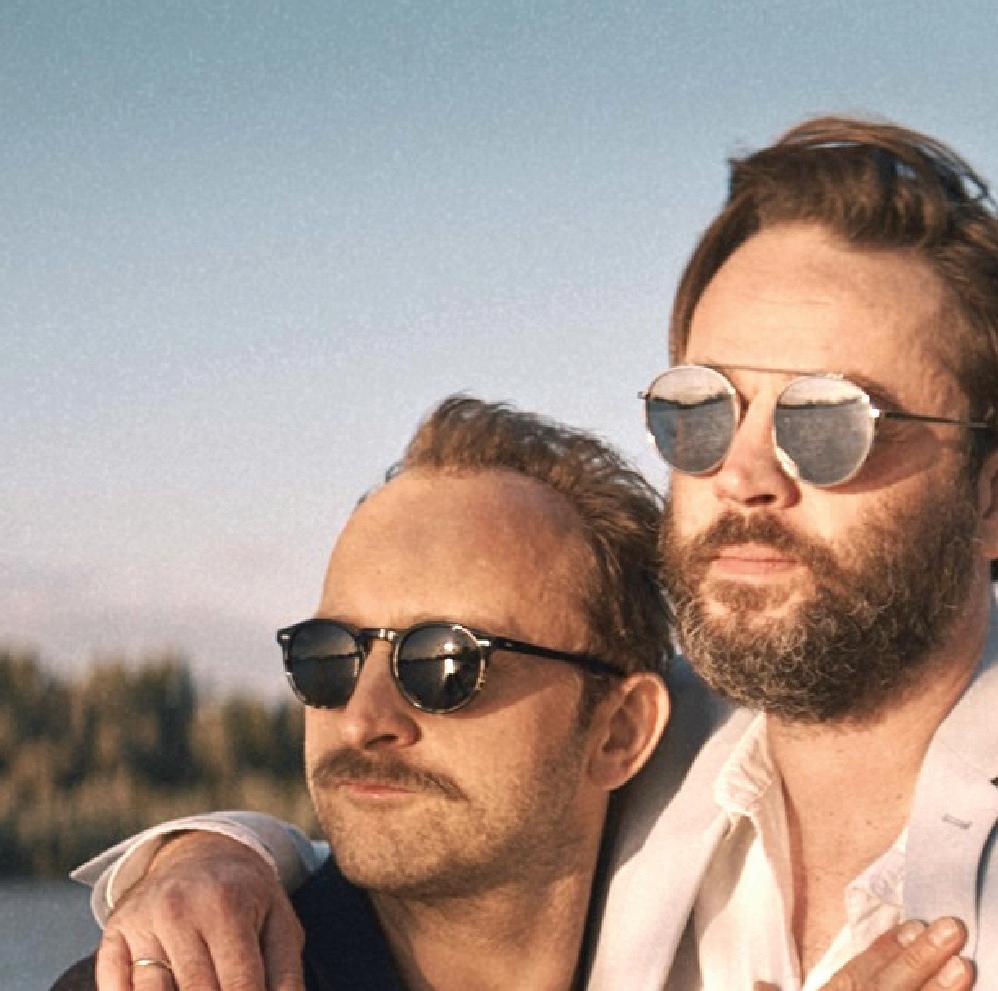



For the exec, whose focus at the time of his appointment was on “growing SkyShowtime originals,” the Śleboda commission underscores this statement of intent. It wasn’t that SkyShowtime hadn’t previously announced CEE originals, but, unlike Śleboda, they were part of a package the streamer acquired from Warner Bros Discoveryowned Max after the latter rethought its local originals strategy. Titles in the deal included Warszawianka, The Winner, Success, The Informant, Czech it Out!, The Sleepers and Hackerville Finke, who grew up watching Danish television with English subtitles on the Frisian island of Sylt in the North Sea, believes understanding and addressing the local content issue in Europe is key. “If you want to be successful in Europe and you’re a streaming service that has been created specifically to entertain European audiences, you also have to make available locally authentic stories,” he explains. “Acquiring a package of projects from HBO gave us a really early opportunity to accelerate local programming.”
But acquisitions are only part of SkyShowtime’s content strategy, says Finke: “You cannot rely on licensing potential first-run shows forever. You have to make that push into original commissions.”
Prior to joining SkyShowtime, Finke spent nine years at Netflix, most recently as director of content for EMEA. Today, he works from the Netherlands and manages a team of programmers based in Warsaw, as well as Stockholm and Madrid.
This year, SkyShowtime will be “announcing another eight to 10 originals,” says Finke. “That growing slate of originals is a testament to our dedication, our commitment to European storytelling and the continued commitment to Eastern European producers.”
With no fewer than 14 of the 22 territories in which SkyShowtime is currently available falling within CEE, it’s easy to see why this region has an important part to play in the streamer’s European ambitions. Finke describes SkyShowtime’s CEE content strategy as informed, on the one hand, by the “aspirational escapism” that global entertainment –and “US entertainment in particular” – offers audiences and, on the other hand, by “very distinct

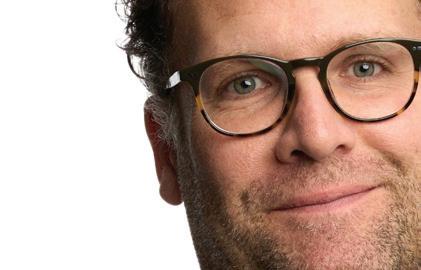




Development Slate
SkyShowtime
Kai Finke, chief content o icer at SkyShowtime, eyes coproductions and joint commissions with local broadcasters as part of a broader content strategy in Central and Eastern Europe. By Louise Bateman
The Informant

viewing preferences” within a “fragmented” region.
“A big part of our programming strategy is to make global Hollywood entertainment available to Eastern European households,” says Finke, pointing to shows such as Yellowstone and its spin-offs 1883 and 1923, plus Halo and Mary & George. But he adds: “We do not just want to be that streamer that is representing the content of our shareholders.”
“We also want to be the home of entertainment for
some compelling and locally authentic stories, which is why we have to liaise with and engage with the local production community. And we are doing that with a growing slate of original content.”
Finke says his programming team is taking a flexible and accommodating approach that includes being open to copros with local partners. “We need to embrace that there’s already an existing creative ecosystem and an industry in the territories we’ve launched in. We want to engage with all the partners throughout that ecosystem,” he says, adding that in CEE, coproductions are unlikely to be across more than one territory because of the fragmented market.
“It has been done in, for example, the Benelux region with Belgian and Dutch or Belgian and French stories. But in Eastern Europe, for now we would be targeting coproductions with a single broadcasting partner.”





e want to be the home of entertainment for some compelling and locally authentic stories, which is why we have to liaise with and engage with the local production community.


 Kai Finke
Kai Finke


Another driver for working with local partners in CEE is financial. “We’re having very active conversations with broadcasters to potentially join forces on cofinancing and coproducing – or co-commissioning –projects that could be windowed,” Finke says. “The shows could live on multiple services at the same time, which would allow us to not just split the bill but also, more importantly, grow audiences together. And in this current environment of increasing budgets, it is important to look into all sorts of almost creative ways of financing stories and enabling great projects.”
Channel21 International | Summer 2024 BACKEND 27
Warszawianka






Three-Year Plan Globoplay
Brazilian content giant Globo’s streaming service Globoplay is targeting international coproductions in the years ahead as it seeks to maintain its pipeline of originals. By
In 2023, Globoplay released its first international scripted coproduction, crime drama Codex 632, in partnership with public broadcaster RTP and studio SPi in Portugal.
Last year the company also entered into a landmark coproduction deal with Disney for a slate of feature films, to be released theatrically before launching on Globoplay as well as Disney+ and Star+ in Brazil and internationally.
Along with drama, Globoplay is keen to partner more widely on movies, documentaries and kids’ fare and has several locally developed series, films and kids’ series it is taking to market in search of coproduction partners, says the streamer’s head of international coproductions, Pablo Ghiglione.
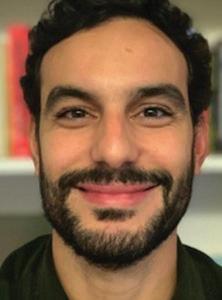
“Everyone is talking about coproduction, so we know everybody wants to do that, and we need to co-finance because we are producing much more content. That’s a point we need to highlight,” says Ghiglione.
Gün Akyuz
heavily, alongside one or two reality and variety shows.
The SVoD platform, which is available in 20-plus countries outside Brazil, including the US and Canada as well as in Europe, offers a ‘freemium’ ad-supported tier alongside its subscription offering, which includes exclusive originals.


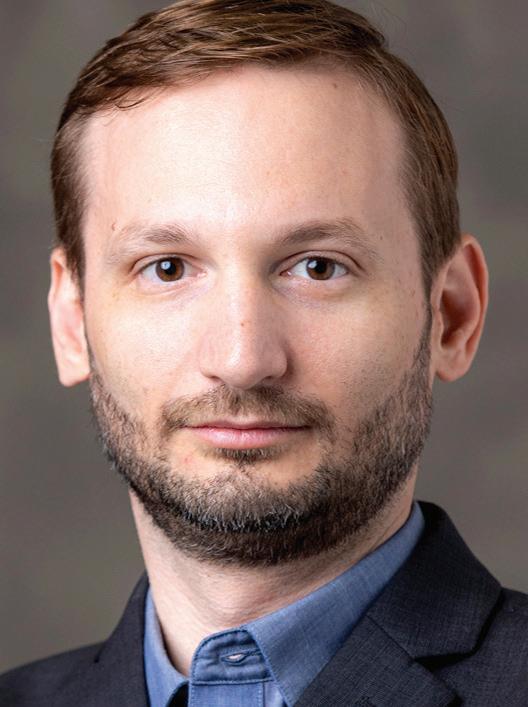
Although Globo’s originals heartland is melodramas, telenovelas and comedies, Globoplay is now adding genres like sci-fi and fantasy to attract younger audiences.
“ Based on the revenue and the number of subscribers, Globoplay is still growing considerably year over year, but we are very conscious about the investments that we make to ensure we grow in a sustainable way.
Antonio Augusto Valente
Meanwhile, parent Globo has a multi-project English-language copro deal with Sony Pictures Television for high-end drama, which includes the wartime spy story Passport to Freedom, released in 2021, and last year’s crime drama Rio Connection Globoplay commissions between 30 and 40 originals each year. In 2023, it launched 36 originals, almost half of which were dramas, including telenovelas, while documentaries also featured
Discussing Globoplay’s approach to copros, Ghiglione says the streamer’s business model is flexible to fit an individual project.
“For example, it could be content filmed in the Globo studios. We are doing things in Portugal and other things in Brazil with Disney. Every deal is different,” he says.
“What’s harder than finding a coproduction partner is finding the right show that could work,” adds Globoplay’s head of content strategy, Antonio Augusto Valente.
Globoplay is flexible about leading on a coproduction or boarding as a partner on a project initiated by others. It is also open to being pitched coproduction ideas for shows that originate outside Brazil, says Ghiglione.
“Everything is possible,” he says. “We can discuss
projects in other languages, and not only in Portuguese. Our audience is mainly Brazilian, so we always want to do content in Portuguese, but when talking about coproductions, that’s not always possible. Of course there are ways to calibrate how we will enter the coproduction deal. For example, for a series in another language, we will not pay 80% of the content costs.”
Globoplay has experienced some of the same challenges seen in other markets, such as inflationary pressures and rising production costs, says Valente.
“It’s definitely a challenge and last year was the first when net additions to streaming platforms didn’t grow much globally. Based on the revenue and the number of subscribers, Globoplay is still growing considerably year over year, but we are very conscious about the investments that we make to ensure we grow in a sustainable way,” he says.
Valente is looking for lighter shows, such as comedies and romantic comedies, in the coming years, programming that “allows viewers to relax, enjoy and get good vibes. However, certain lines of content will remain a priority, such as true crime documentaries, which work very well for us and which we will continue to do,” he adds.
“And we also make biographical documentaries about big Brazilian stars, like the one we broadcast about [actress, singer and businesswoman] Xuxa. To sum up, our strategy is that we want Brazilian stories, made by Brazilians for Brazilians. We know the Brazilian audience better than anyone.”
Globoplay also licenses finished foreign shows, notably US ones, including exclusive rights to The Good Doctor, as well as Turkish telenovelas and movies. So what else would Valente like to take off the shelf and add to the streamer’s library? “Something that I’m very keen on right now is Korean dramas. They’re a huge success in Brazil and with foreign audiences, and that’s something we are very keen on bringing to Globoplay.”
Pablo Ghiglione
BACKEND Channel21 International | Summer 2024 28
Codex 632


GET YOUR PASS NOW! TH anni ver sary 24 27 JUNE 2024 The international marketplace and community for documentary La Ro c h e l l e, Fra n c e
Channel 4’s algorithm method in action
At a recent conference I had the privilege of discussing the issue of content discoverability in a sea of streaming choice alongside execs from A+E Networks and Samsung.
Top of my mind was how responsible curation, a trusted tone of voice and quality content remain vital to help viewers decide what to watch. Yes, we need to enrich viewing experiences through data and user interface (UI) enhancements, but we are equally clear that we need to retain our voice as a trusted curator. With so much noise in the market, retaining that voice is even more important.
Crucial to our ‘philosophy’ is upholding our editorial integrity and brand reputation whilst embracing new technologies. Data is incredibly important, but as a public service broadcaster (PSB), our approach is to try to not only persuade a viewer to watch something but also to build their trust in the service. We do this by continuously improving the quality of those recommendations, encouraging viewers to feed their recommendations through ‘learned actions’ (the more you watch the better they become) and using clear signposting. Ultimately, our goal is to weave our content priorities and editorial strategy into the algorithm in what we term ‘smart curation.’ In an ever-more algorithmic world, how do we do that? Is it possible to embrace artificial intelligence (Al) and personalisation without losing our PSB point of difference? Very often it can feel binary, like it’s ‘robots’ vs humans, AI vs creator. I believe the reality is more subtle: we can teach AI what our priorities are. Key to success in this space is working with our internal stakeholders and partners to ensure our brand values and content strategy are reflected within the recommendations, metadata and platform Uls. Our ambition around curation is to strike a balance, to bring the viewer with us and earn that trust. When a viewer lands on the Channel 4 homepage, we want to show them a wide range of content they expect to see without overwhelming them. Think of it like a trust funnel. The more they engage and browse and the deeper they go into our app, the more licence we have to curate. In short, the more you show us you need our help to decide what to watch, the more we can dial up our curation, recommendations and tone of voice.
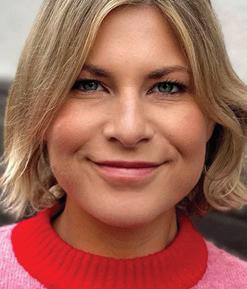
Alexandra Wall, Channel 4’s head of streaming editorial, considers how PSBs can use a mix of personalisation and editorial curation to build trust with their audience and break down echo chambers.
that might be outside their usual viewing habits, rather than just shows similar to what they’ve watched before. We achieve that by ensuring a mix of editorial curation and algorithmic recommendations on the homepage and other promotional areas on the app. That allows us to align with our wider advertising campaigns or word of mouth moments, which are crucial to raising awareness of our shows. Through our qualitative user research, we’ve learned that viewers have come to expect personalisation on any VoD platform. But they also value our curation and editorial voice, so it’s vital we don’t lose that balance.
“Our ambition around curation is to strike a balance, to bring the viewer with us and earn that trust. When a viewer lands on the C4 homepage, we want to show them a wide range of content they expect to see without overwhelming them.
Another way we look to ‘surprise’ the viewer is through working with our partner, Think Analytics, to ensure our recommendations boost recency and popularity and not just relevance, to ensure the mix of shows within the recommendation engine reflects the diverse range of content we have on the platform. For me, continuously striving to improve the recommendation algorithm, both in the backend and encouraging users to optimise their profile by liking and viewing, has more value than discovery tools that prompt a viewer to watch something random.
In a streaming world, persuasion and trust are both important. Personalisation is a crucial, growing tool in our editorial armour, but central to our strategy is to build viewers’ trust and meet their expectations of what Channel 4 represents, whether that’s through editorial curation, social currency and word of mouth, or algorithmic recommendations that feel relevant to you.
EDITORIAL
Editorial director Ed Waller ed@c21media.net
Editor of C21Media.net Jonathan Webdale jonathan@c21media.net
Chief sub-editor Gary Smitherman gary@c21media.net
Head of design John Winfield john@c21media.net
Senior sub-editor Steve Warrington steve@c21media.net
News editor Clive Whittingham clive@c21media.net
Channel21 International editor Nico Franks nico@c21media.net
DQ editor Michael Pickard michael@c21media.net
Research editor Gün Akyuz gun@c21media.net
C21Kids editor Karolina Kaminska karolina@c21media.net
North American editor Jordan Pinto jordan@c21media.net
Senior reporter Neil Batey neil@c21media.net
Special projects editor Louise Bateman louise@c21media.net
EVENTS
Event programming director Ruth Palmer ruth@c21media.net
Head of event programming Justin Davies justin@c21media.net
Head of events Gemma Burt gemma@c21media.net
Events assistant Mia Hodgson mia@c21media.net
Office manager Katie Reilly katie@c21media.net
Team assistants Caitlin Wren caitlin@c21media.net
Group CFO (consultant) Ravi Ruparel ravi@c21media.net
ADVERTISING
Founding partner and commercial director Odiri Iwuji odiri@c21media.net
Sales director Peter Treacher peter@c21media.net
Telesales director Nick Waller nick@c21media.net
Business development director Patricia Arescy patricia@c21media.net
Sales manager Hayley Salt hayley@c21media.net
Senior sales executives Richard Segal richard@c21media.net
Malvina Marque malvina@c21media.net
Telesales executive Yasmin Connolly yasmin@c21media.net C21TV
Head of television Jason Olive jason@c21media.net
Video editor/motion designer Adrian Ruiz Martin adrian@c21media.net
FINANCE
Finance director Susan Dean susan@c21media.net
Finance manager Marina Sedra marina@c21media.net
Senior finance officer Shuhely Mirza shuhely@c21media.net
PRODUCTION
Operations director Lucy Scott lucy@c21media.net
Head of digital Laura Stevens laura@c21media.net
Production manager Courtney Brewster courtney@c21media.net
Lily Miller lily@c21media.net
Rory Mullan Wilkinson rory@c21media.net
Editor-in-chief & managing director David Jenkinson david@c21media.net
A crucial part of our curation strategy is to present audiences with new, surprising content
As we accelerate our transformation into a public service streamer and dive into the next iteration of content discoverability, Channel 4 must remain distinctive, yet relevant. Can we truly do both? I believe we can.
PRESENT IMPERFECT FUTURE TENSE: Alexandra Wall Channel21 International | Summer 2024 30 2nd Floor, 148 Curtain Road, London EC2A 3AT Tel: +44 (0) 20 7729 7460 Fax: + 44 (0) 20 7729 7461 Email: post@c21media.net You can read C21 every day on www.C21media.net – the world’s leading International Entertainment Business website. Also on C21Media.net you can find a number of channel brands and services including C21Kids, C21FormatsLab, C21Factual and Content Strategies and an extensive industry MediaBase which is constantly updated and features more than 25,000 contacts worldwide. Subscribers to C21Media.net have access to the most respected information source in entertainment. This issue of Channel21 International was printed by Walstead Roche, Cornwall. Channel21 International is registered as a newspaper. No part of this publication may be copied, stored or copied on to any electronic system or broadcast via any other medium without prior consent of the publisher. All rights reserved. All trademarks acknowledged. © Channel21 International 2024 ISSN number: 1460-0668



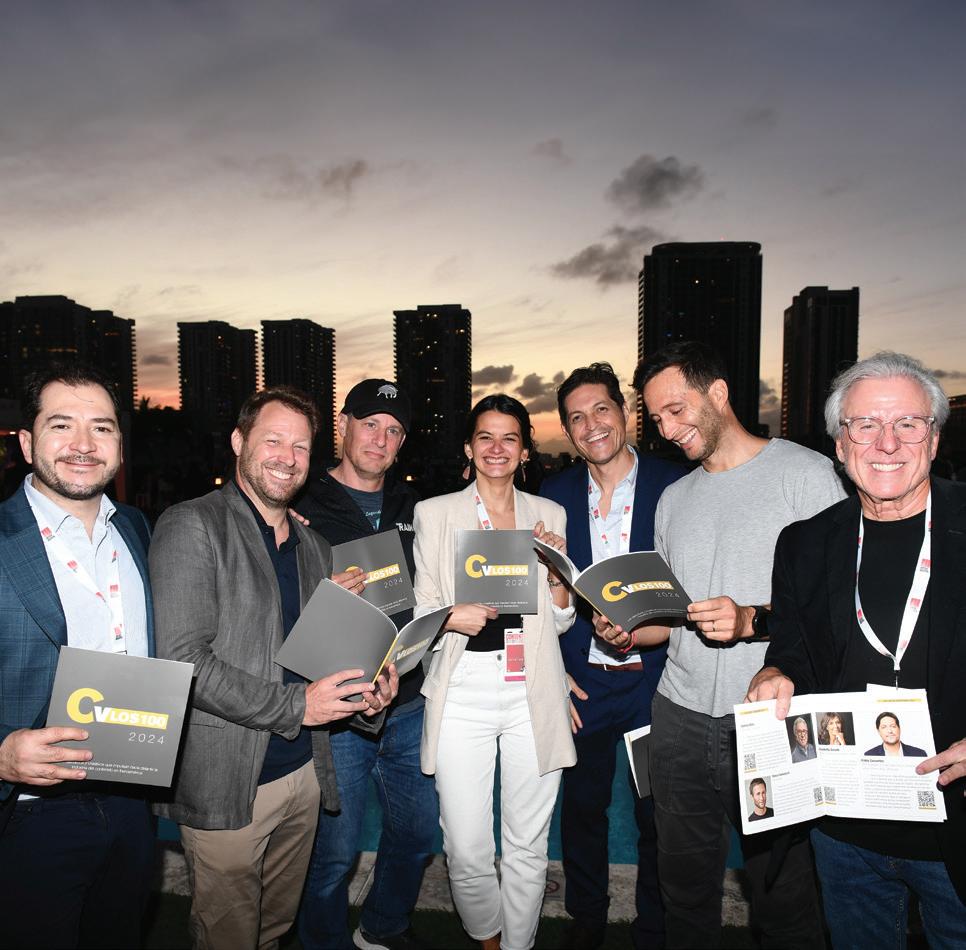

20-23 January 2025
When an event scores 8.2/10 from exhibitors and delegates, you know it’s a must-attend.
See you in Miami for the first (and best) market and conference of the year.







































































































































































































































































































































































































































 Kai Finke
Kai Finke






















